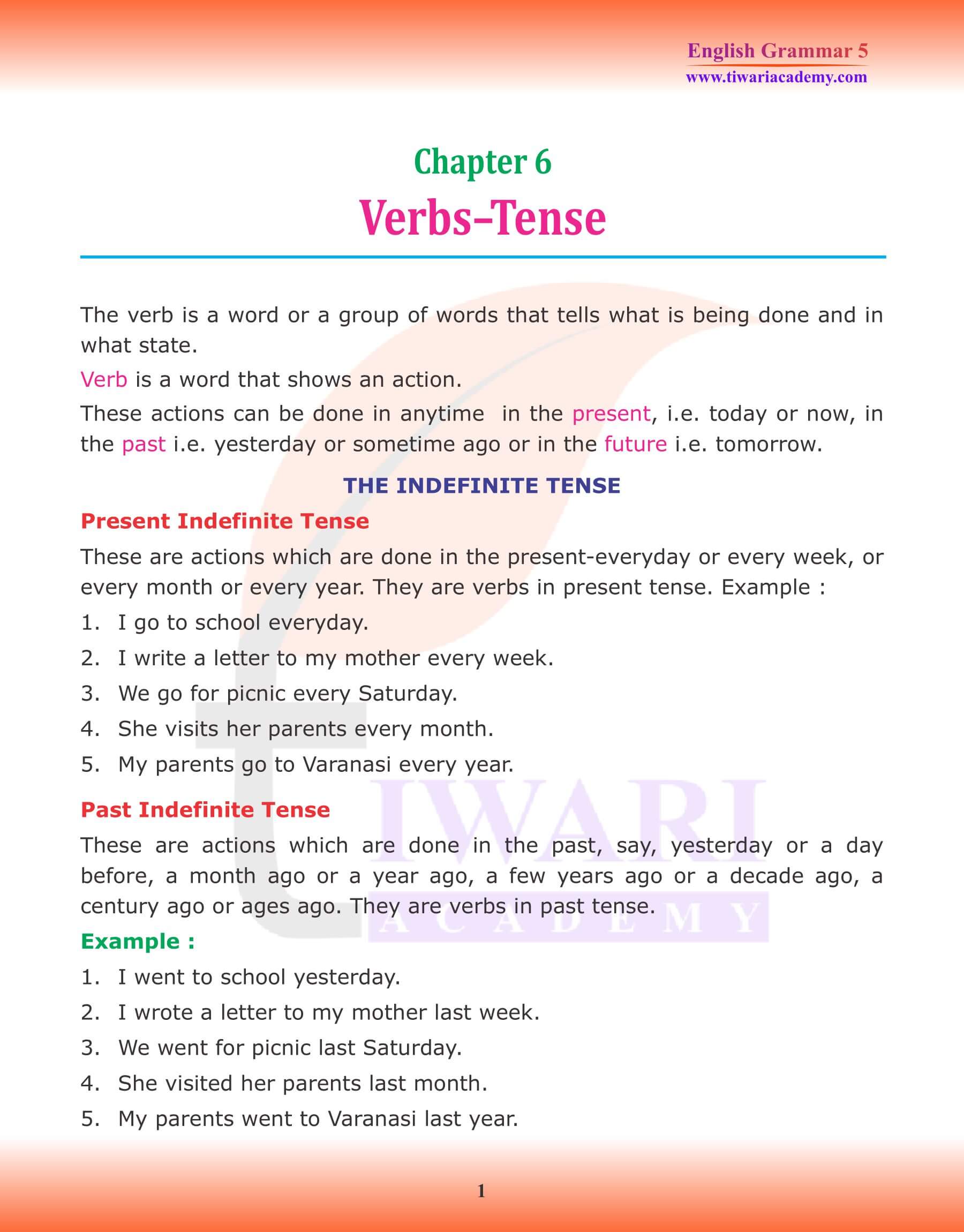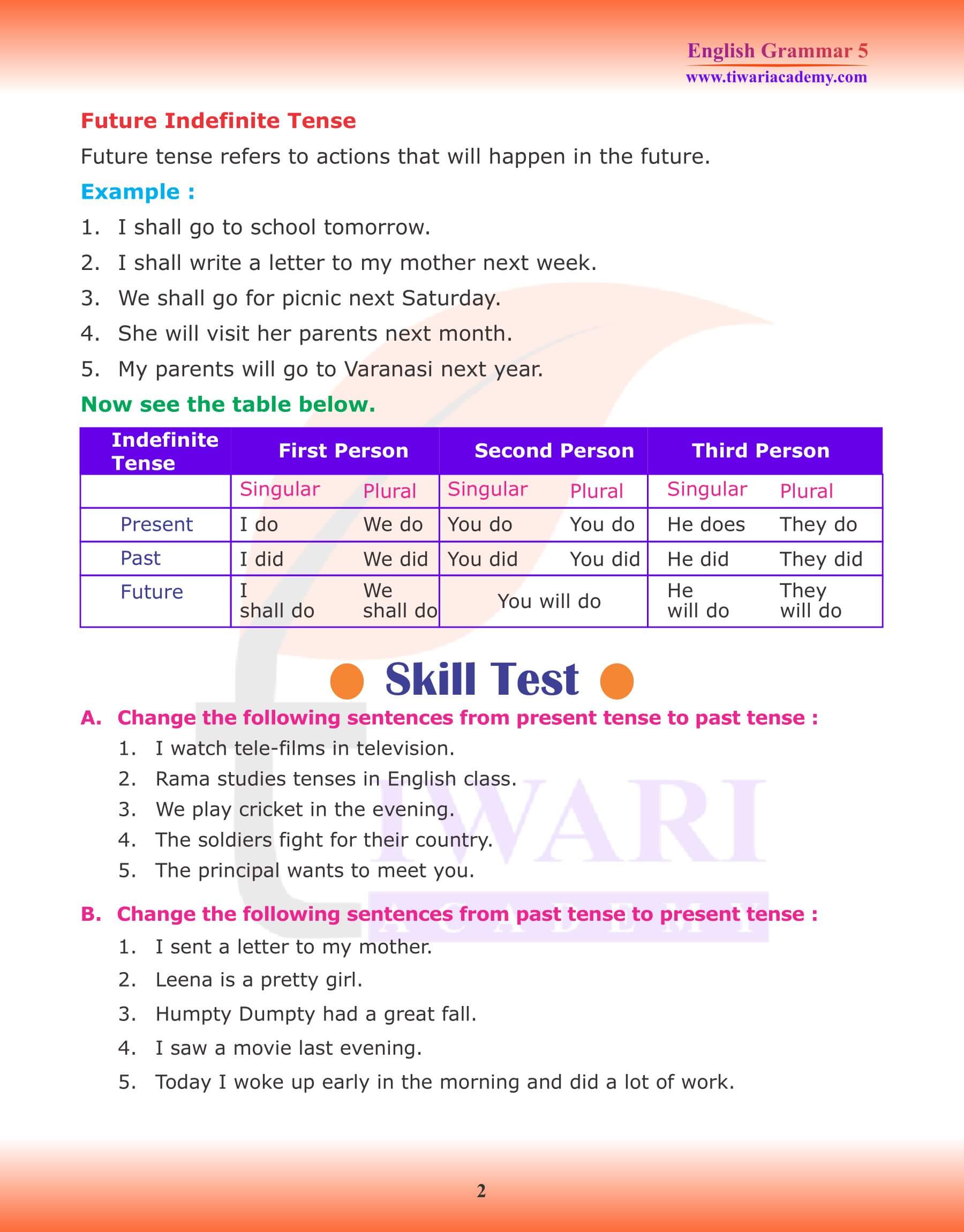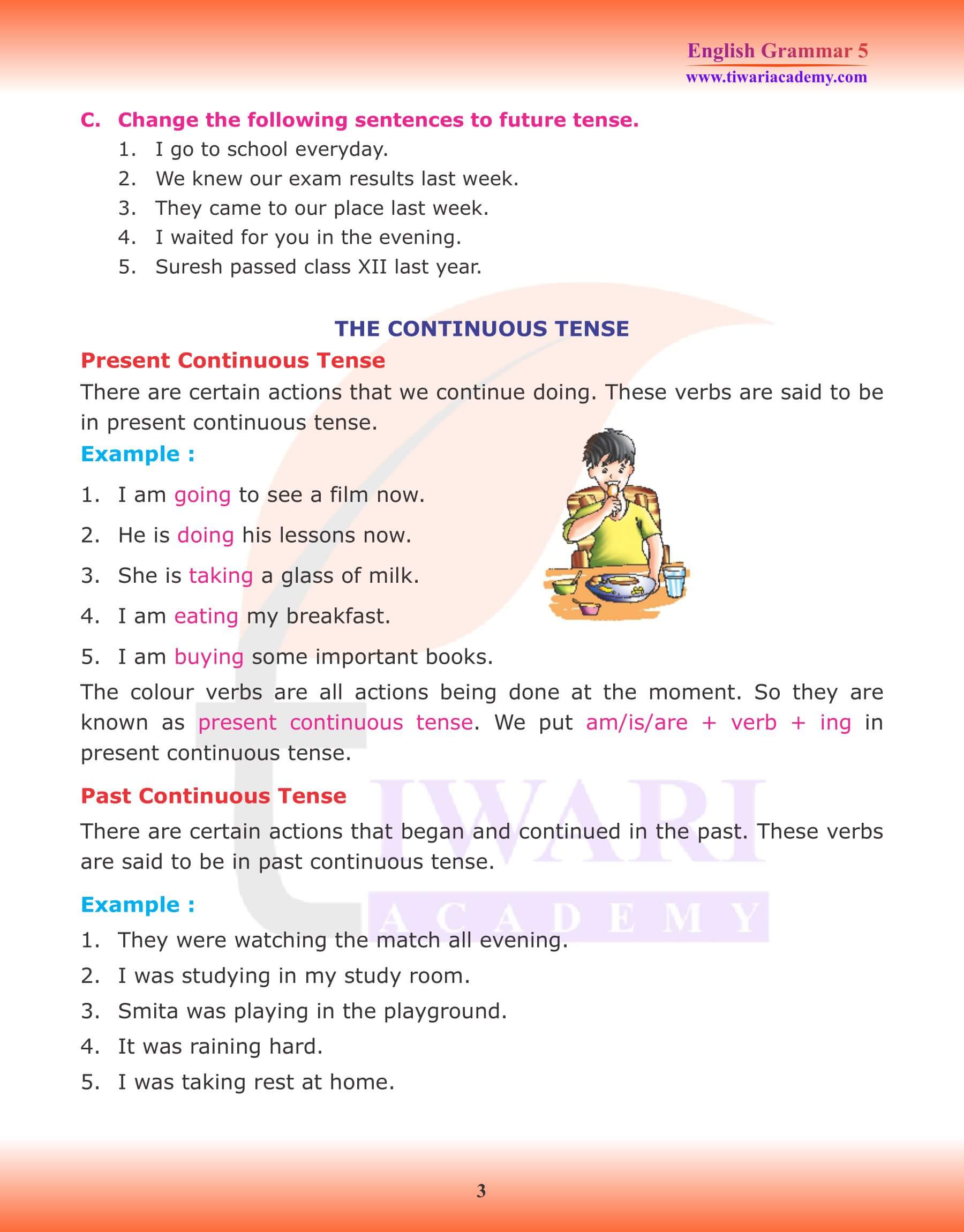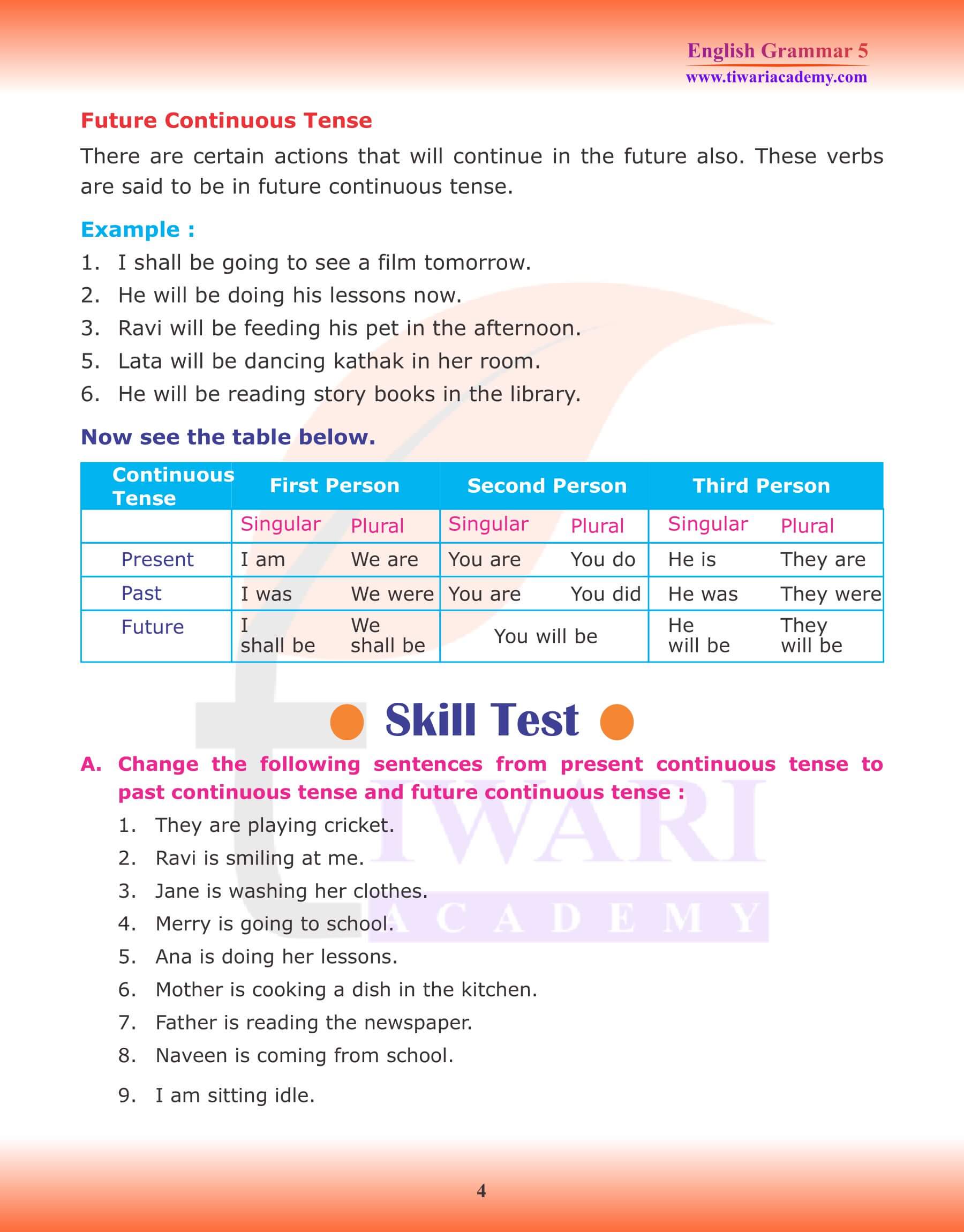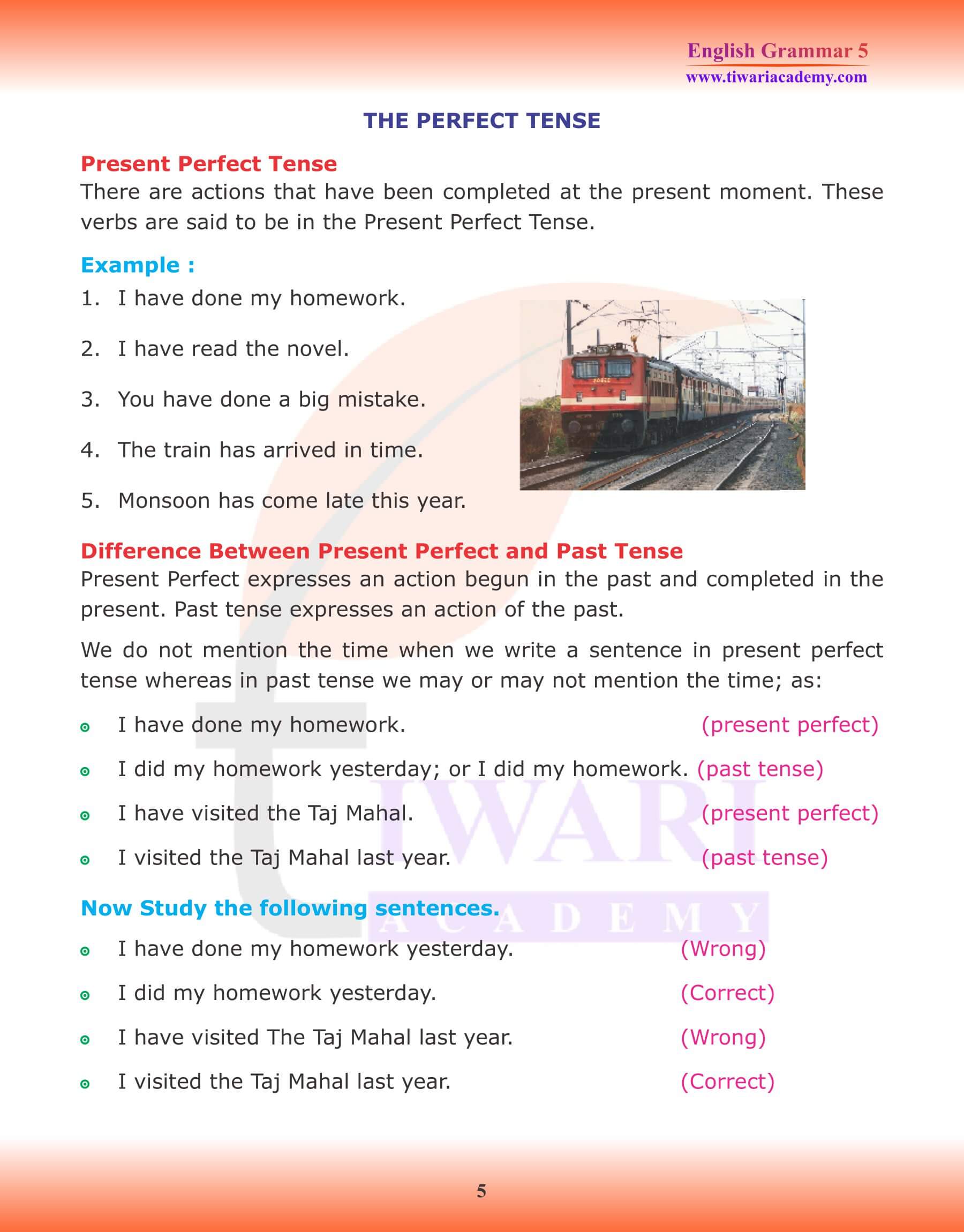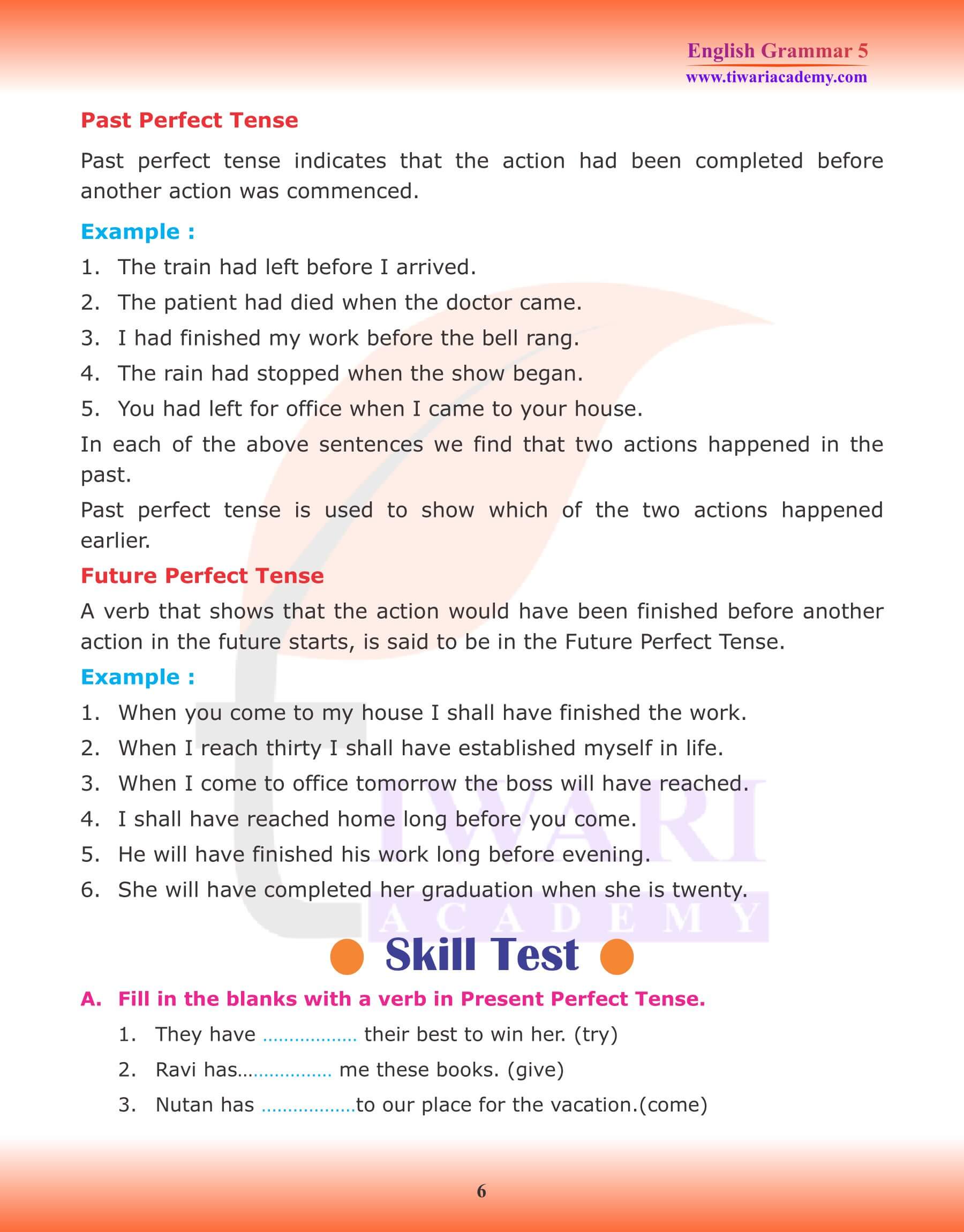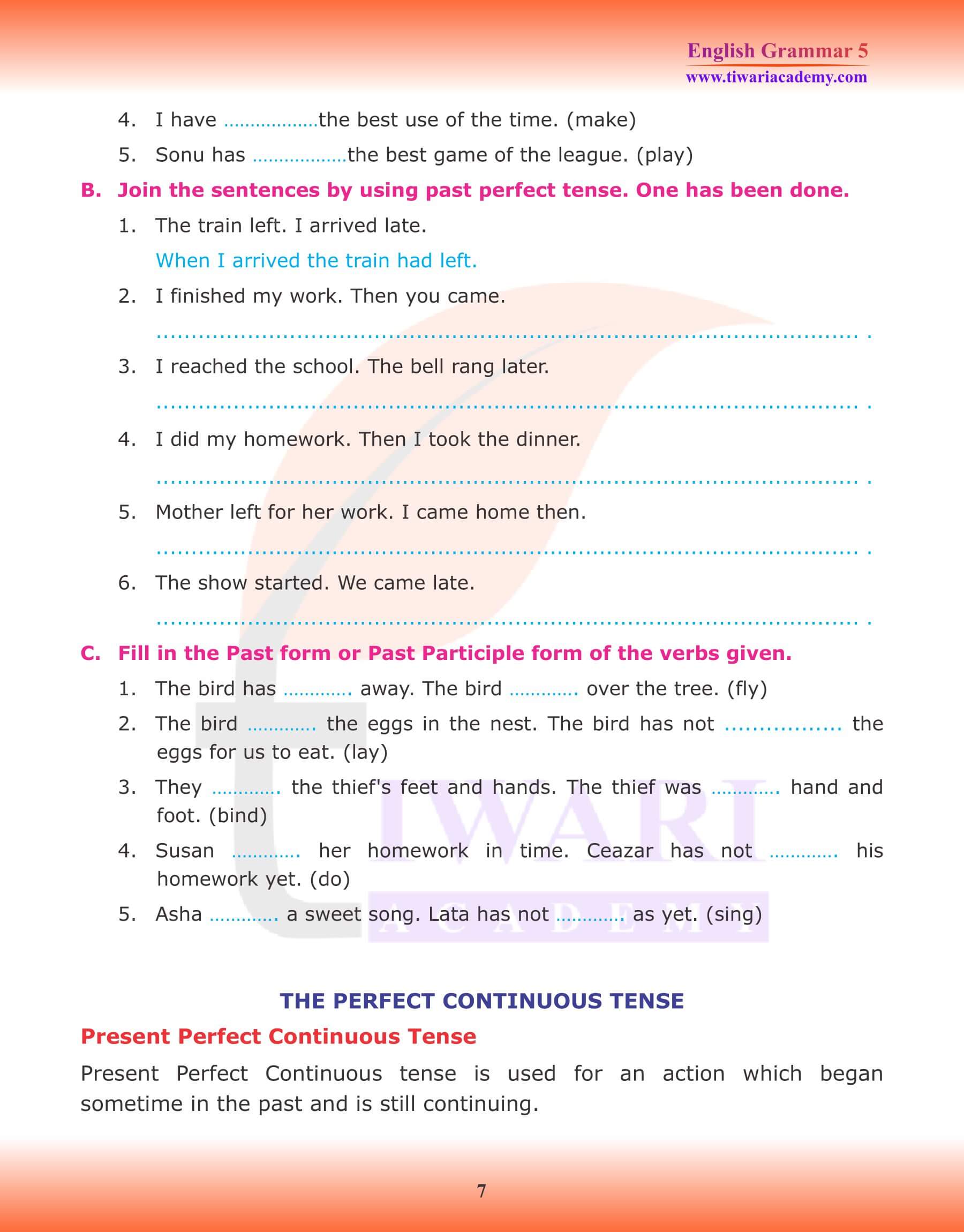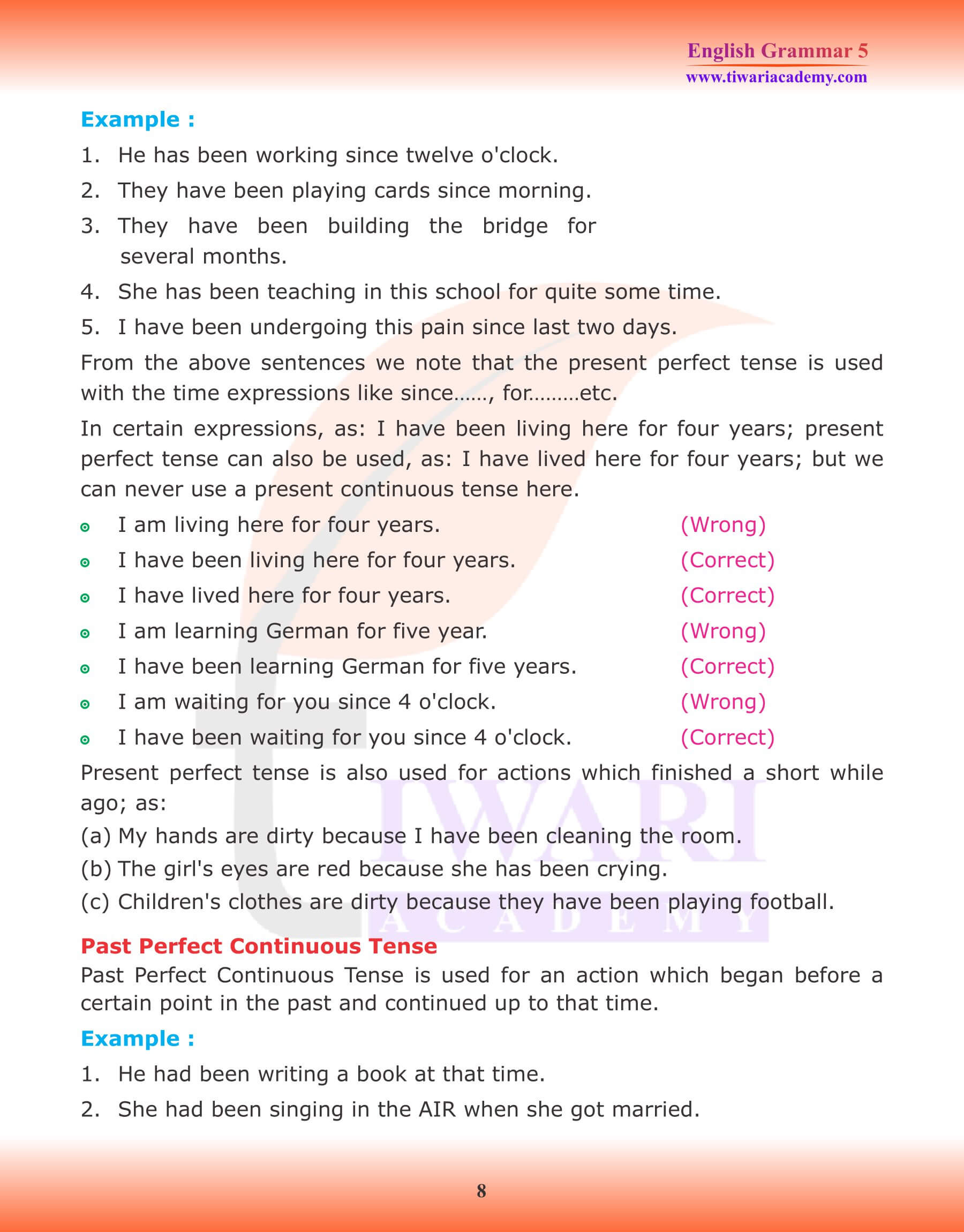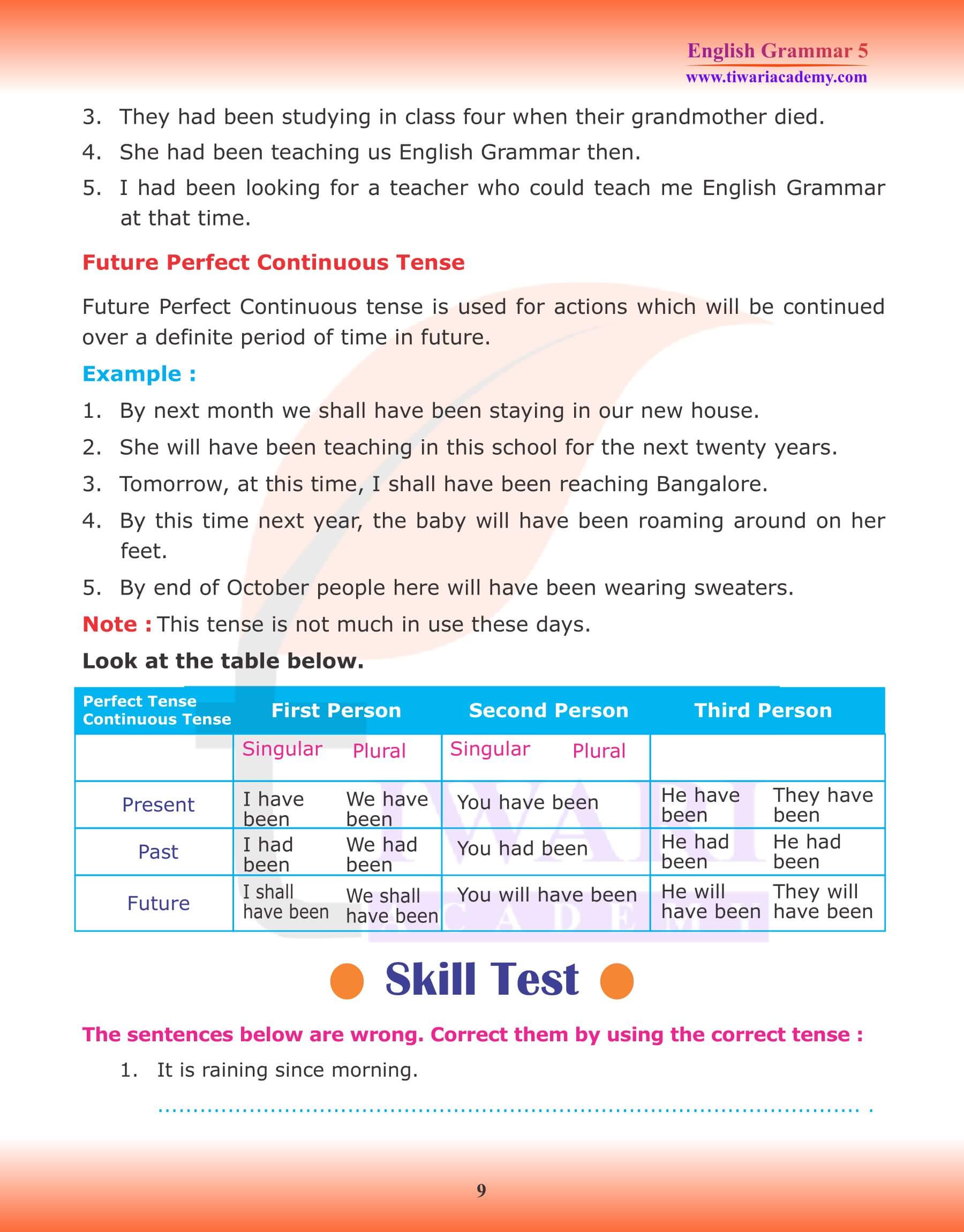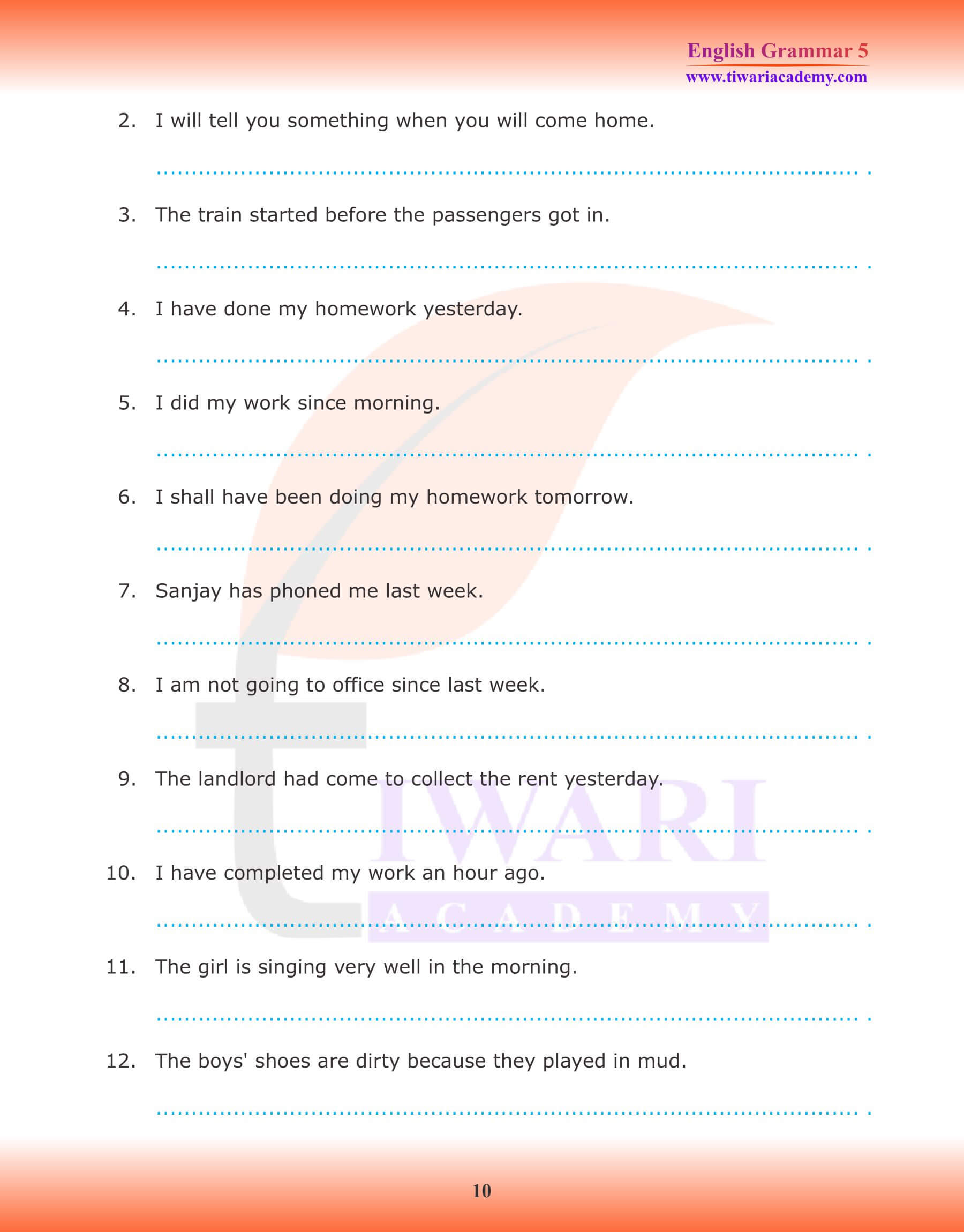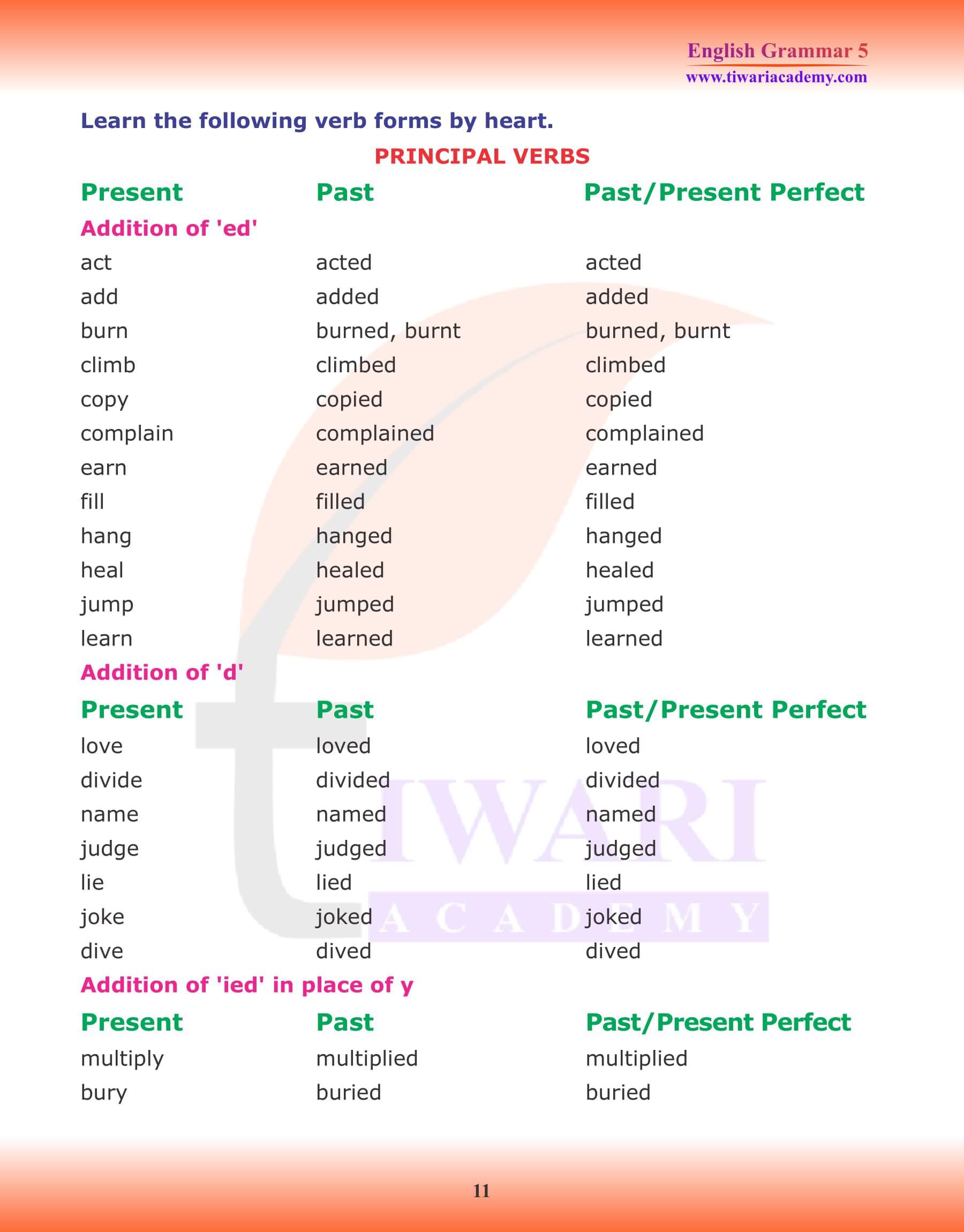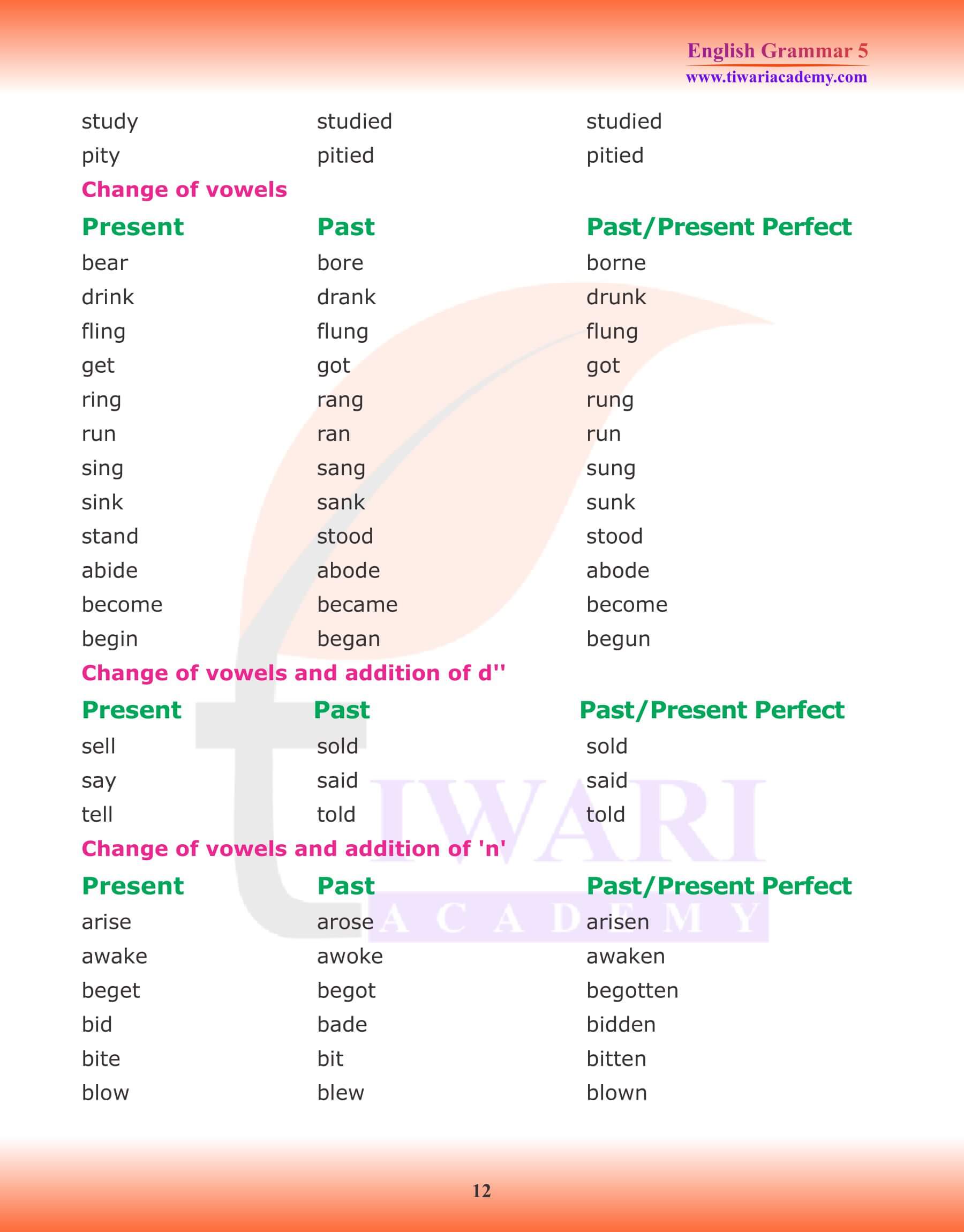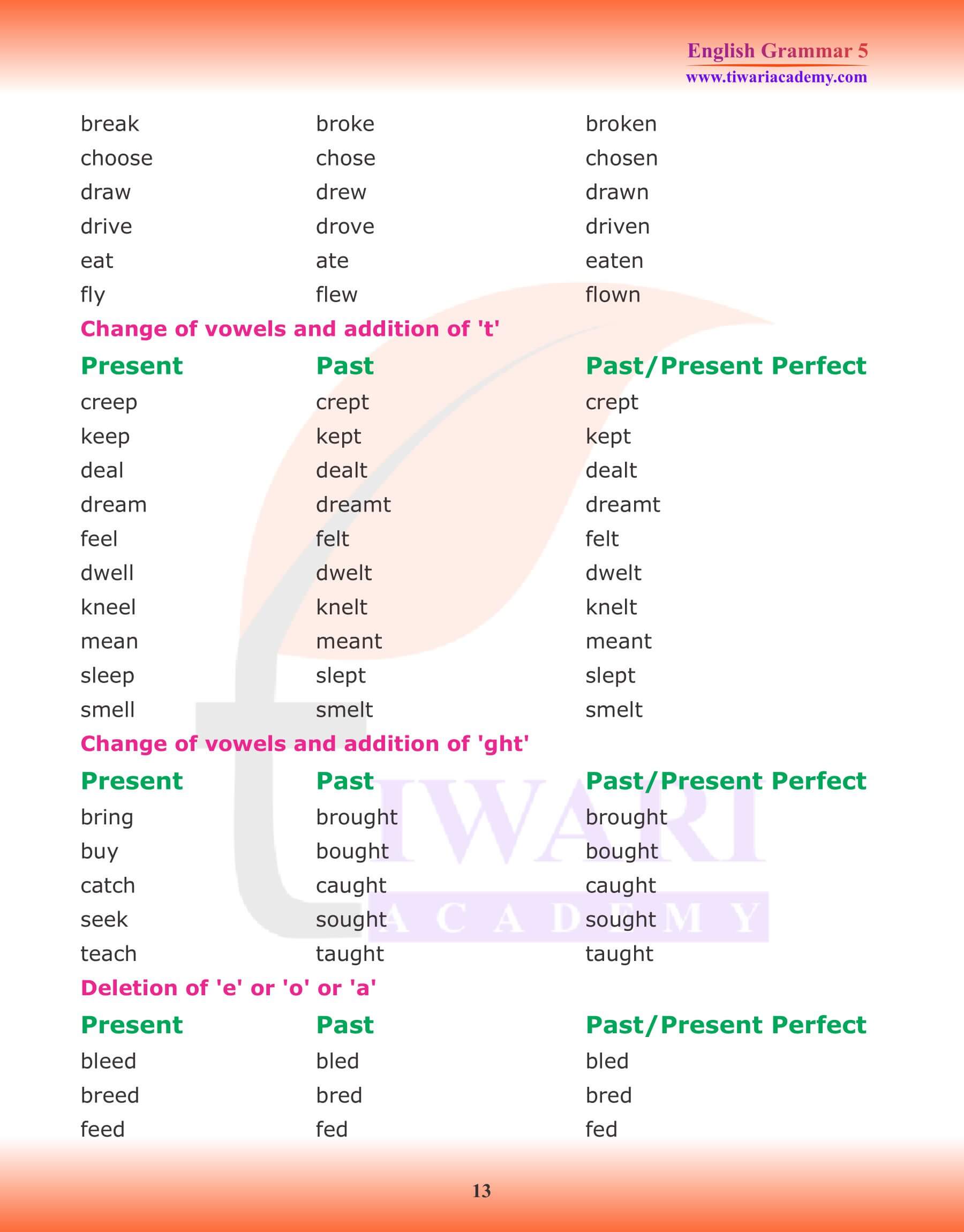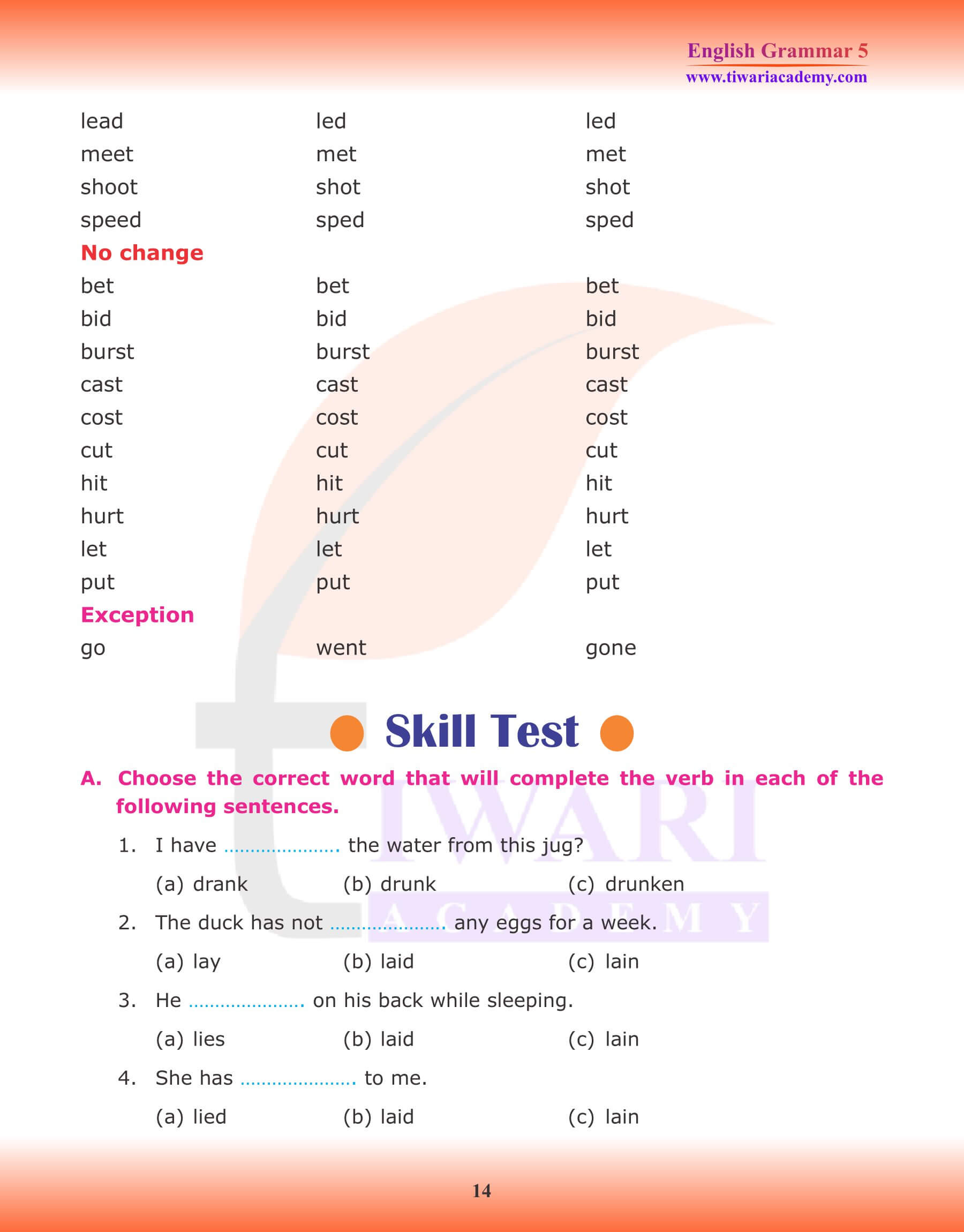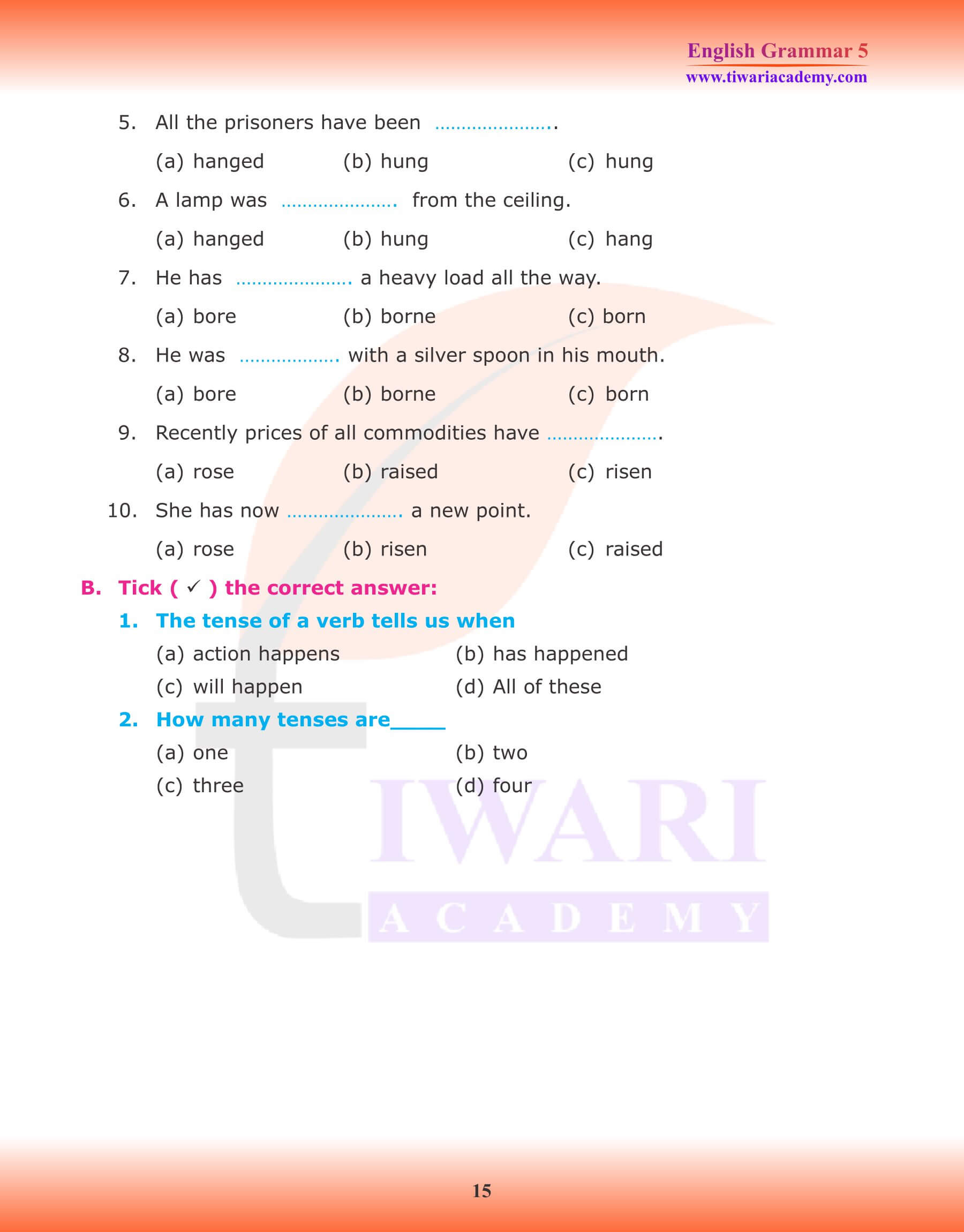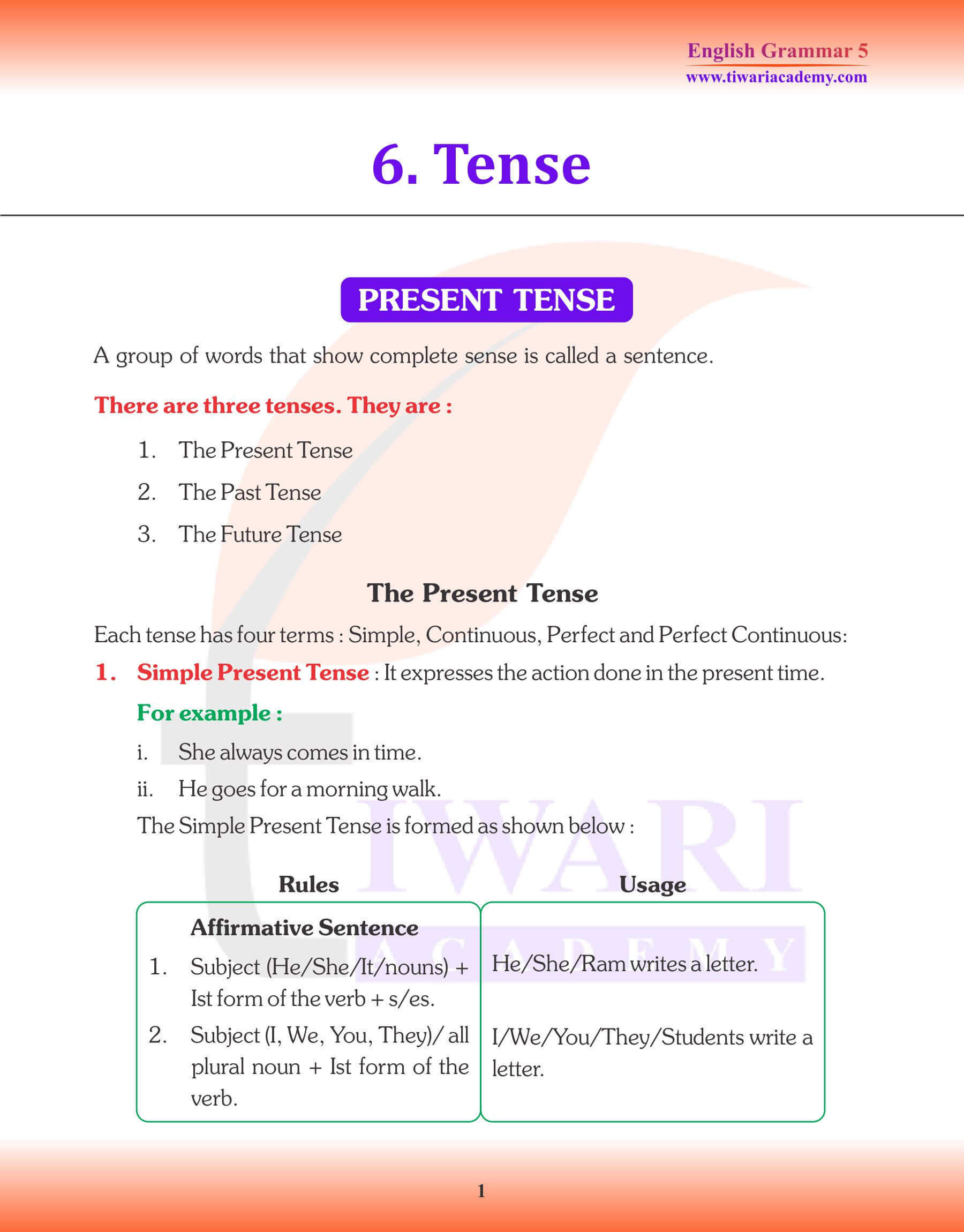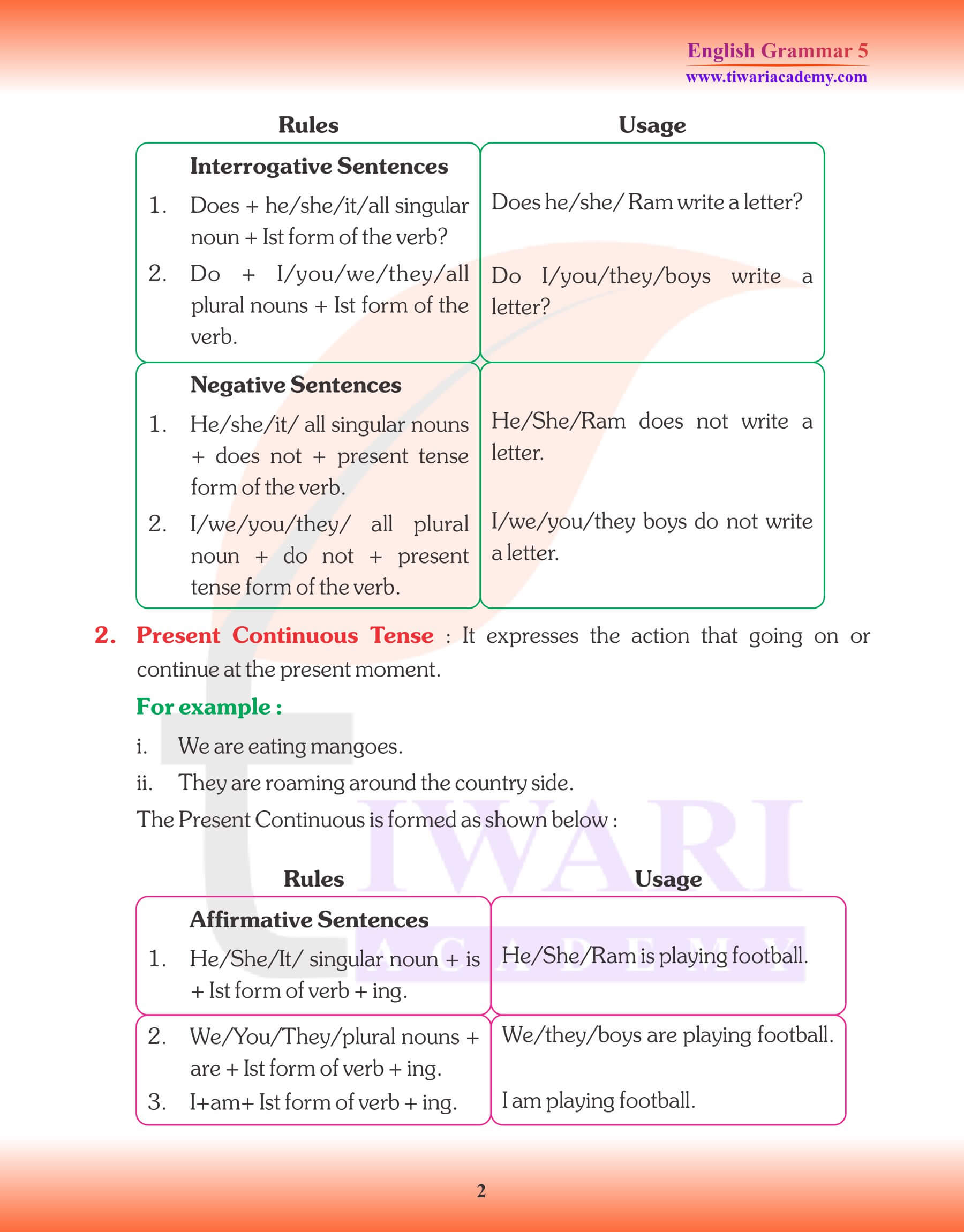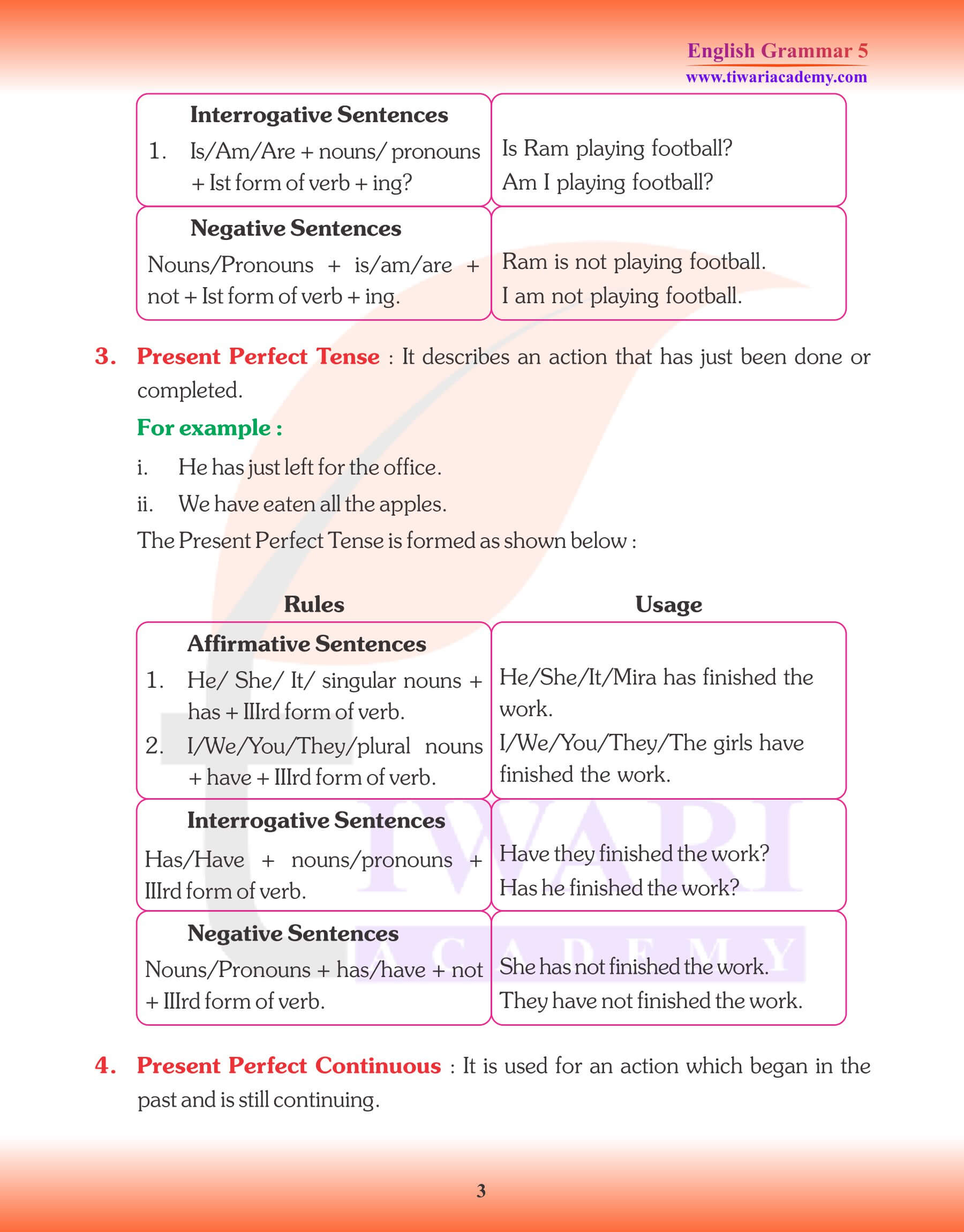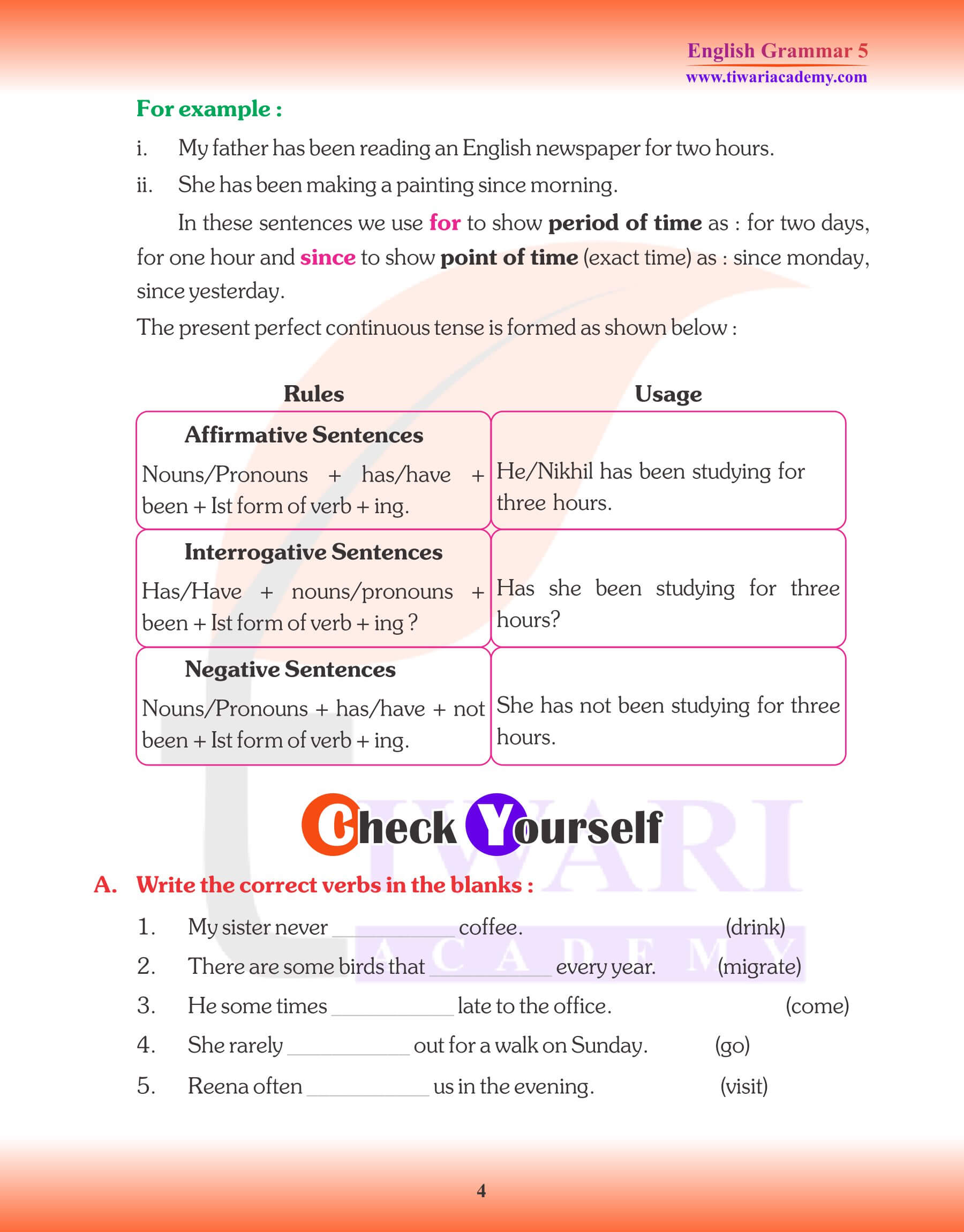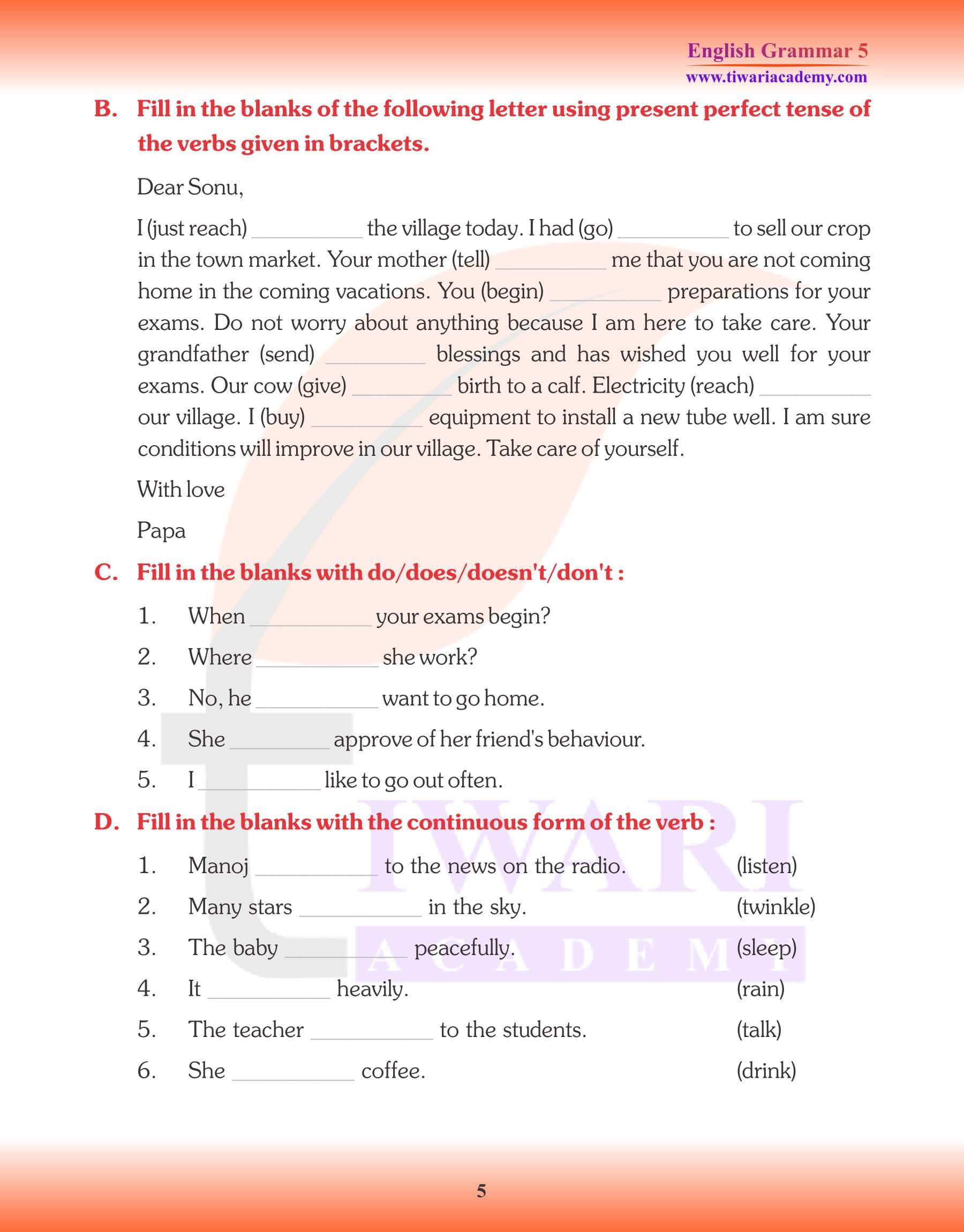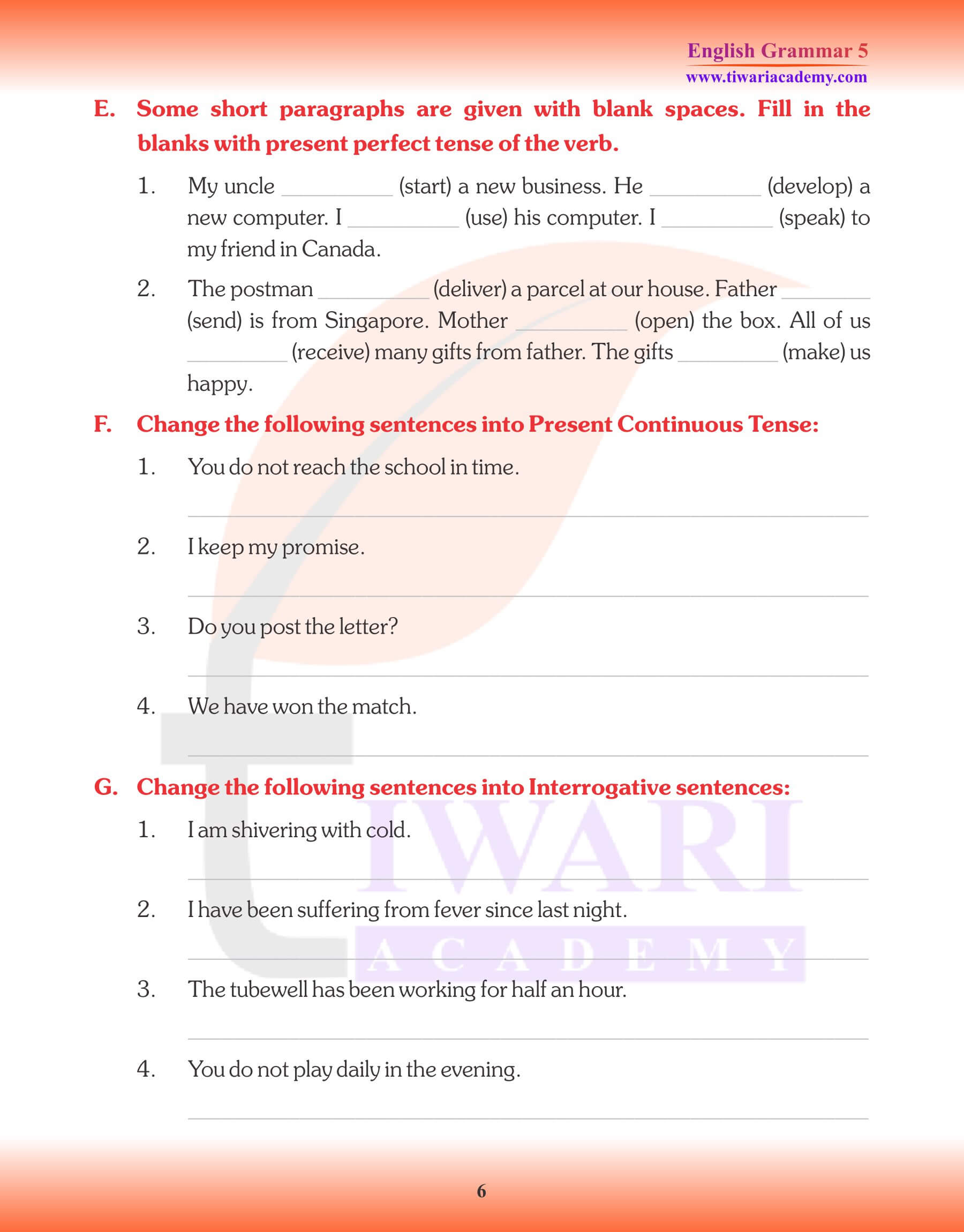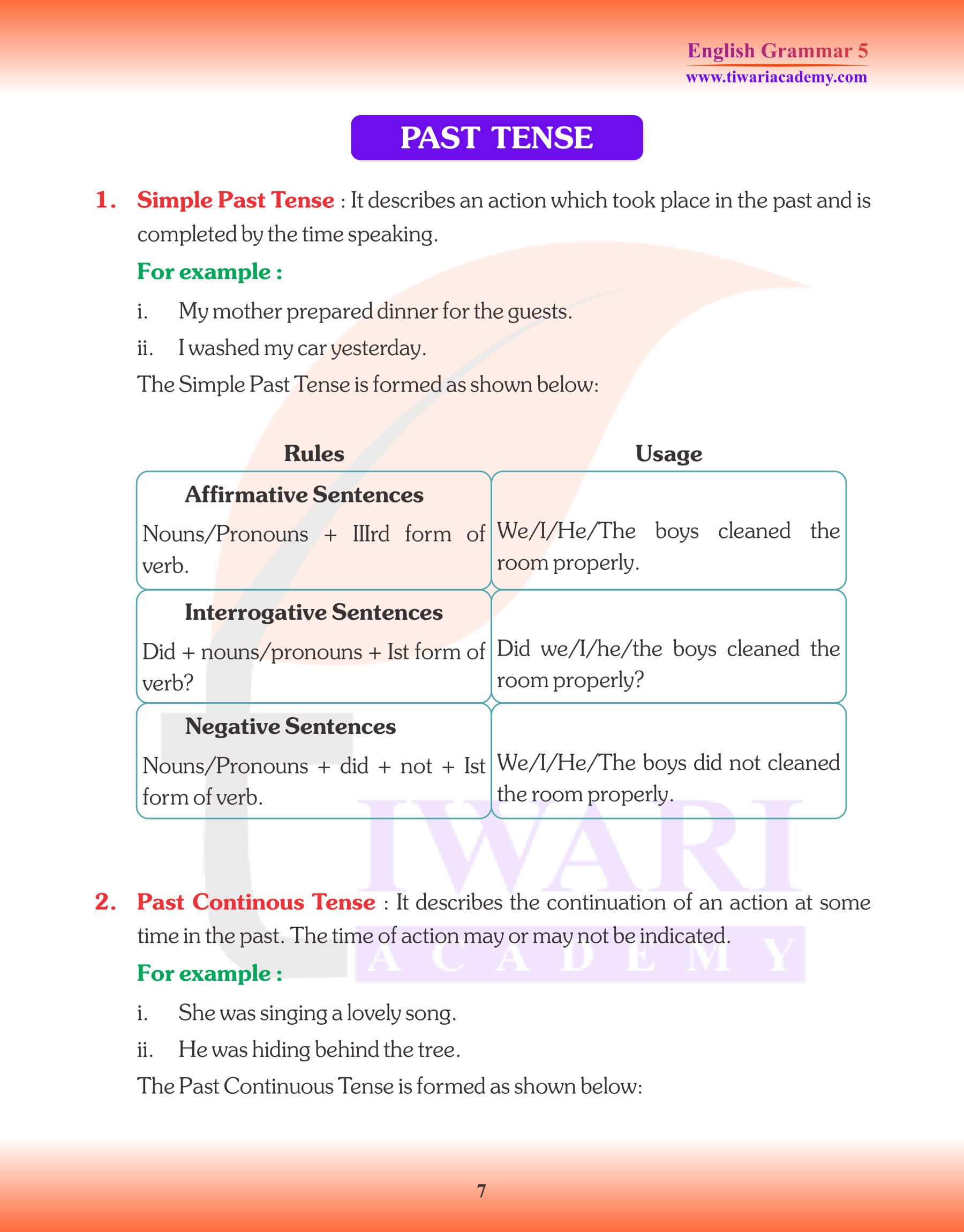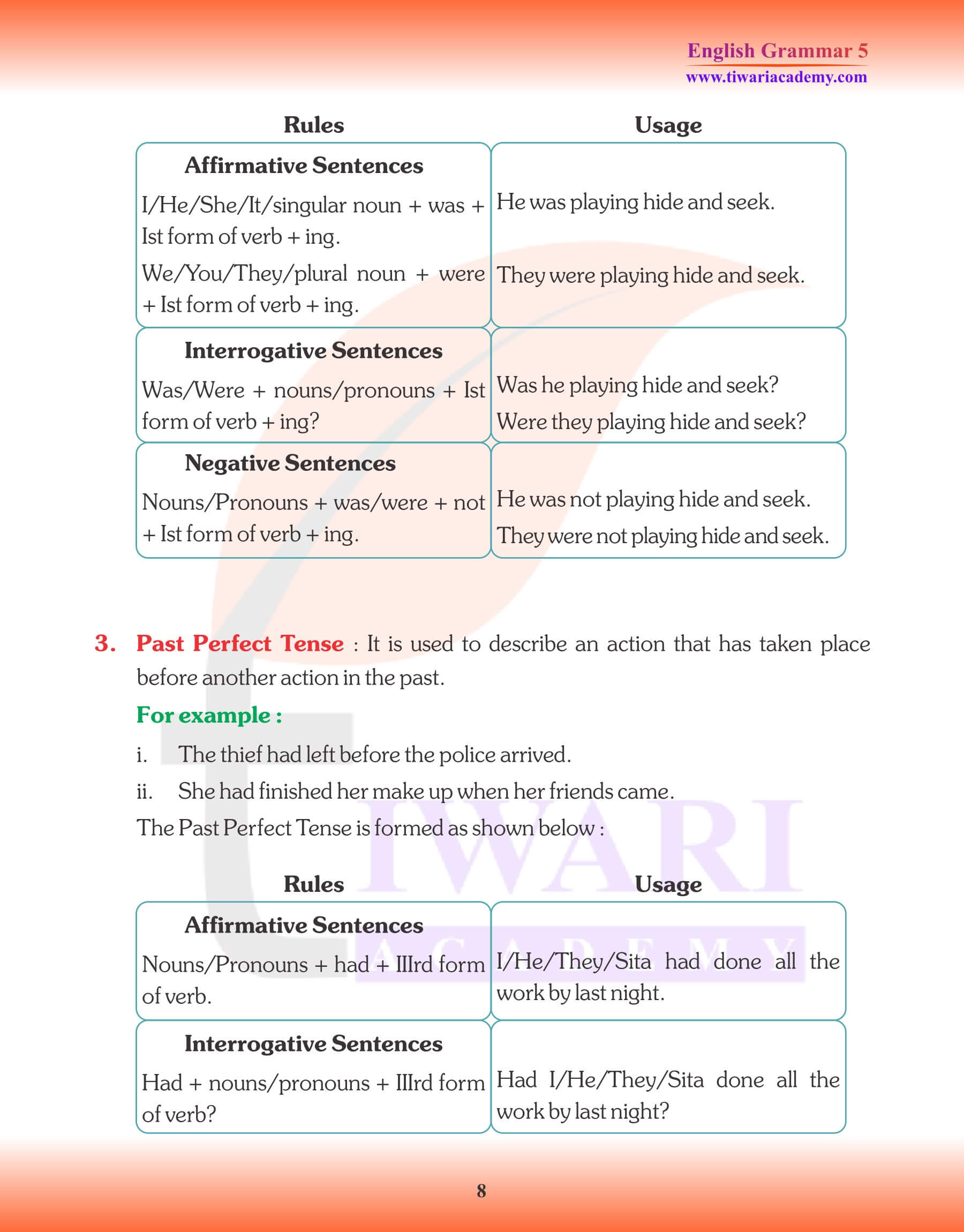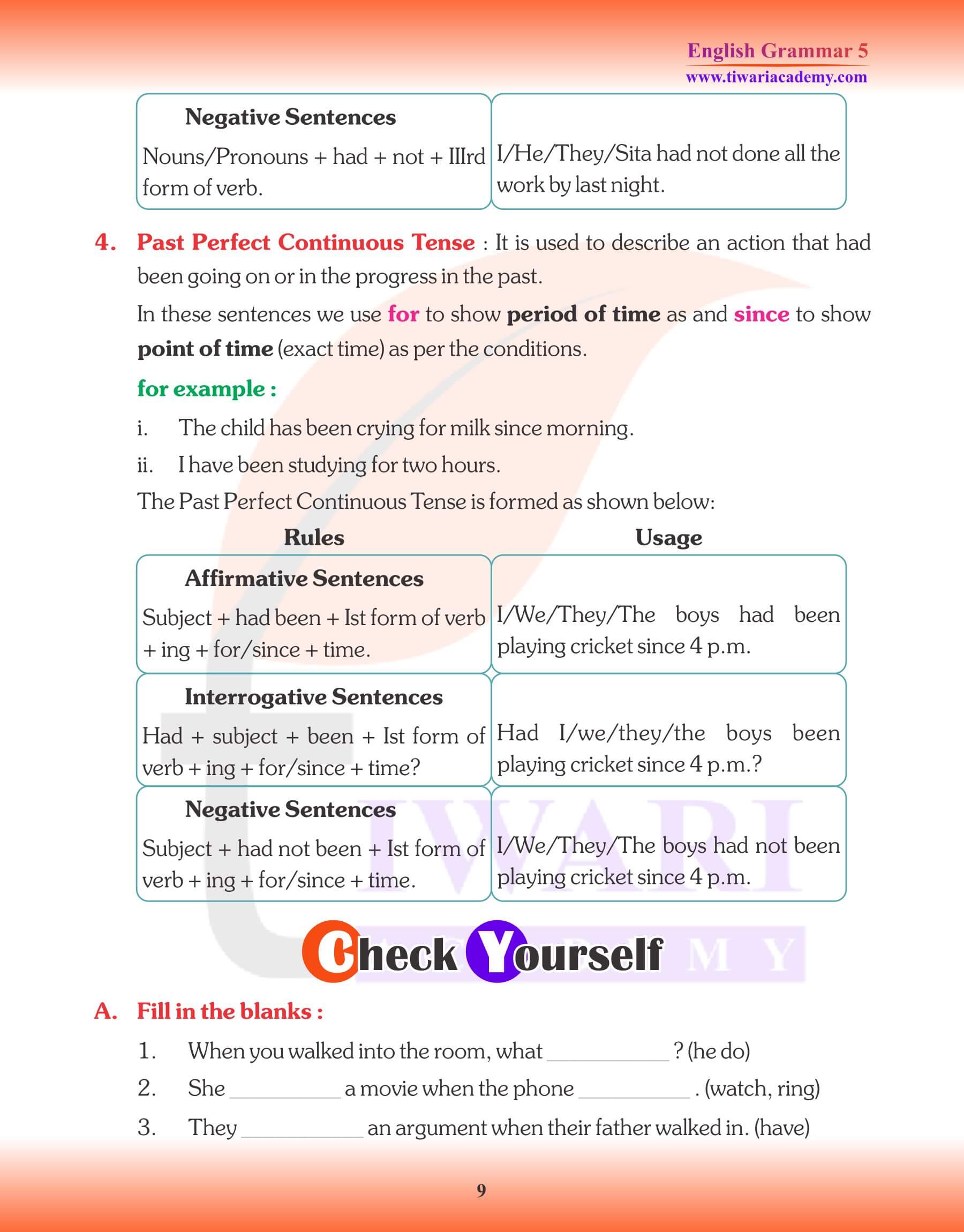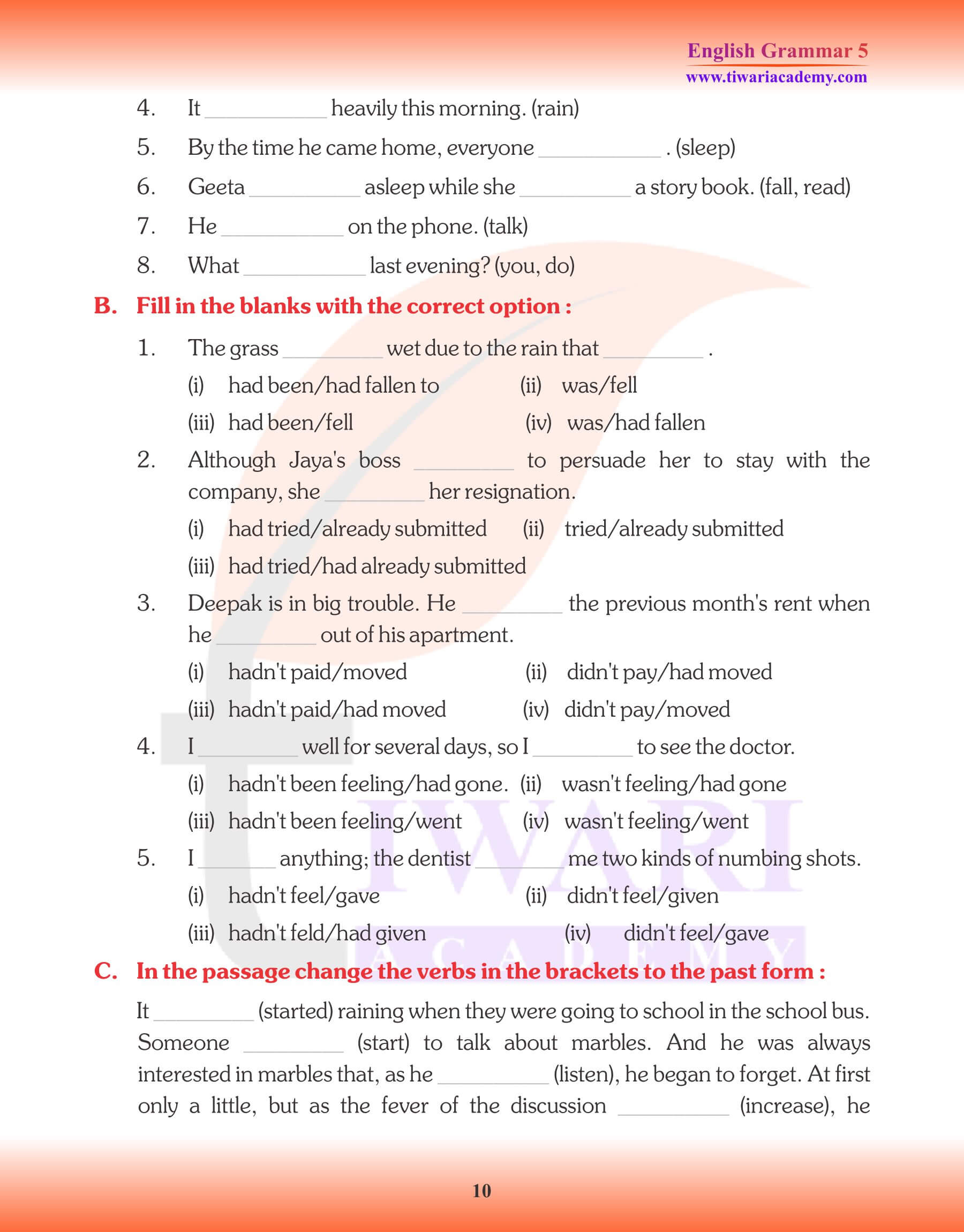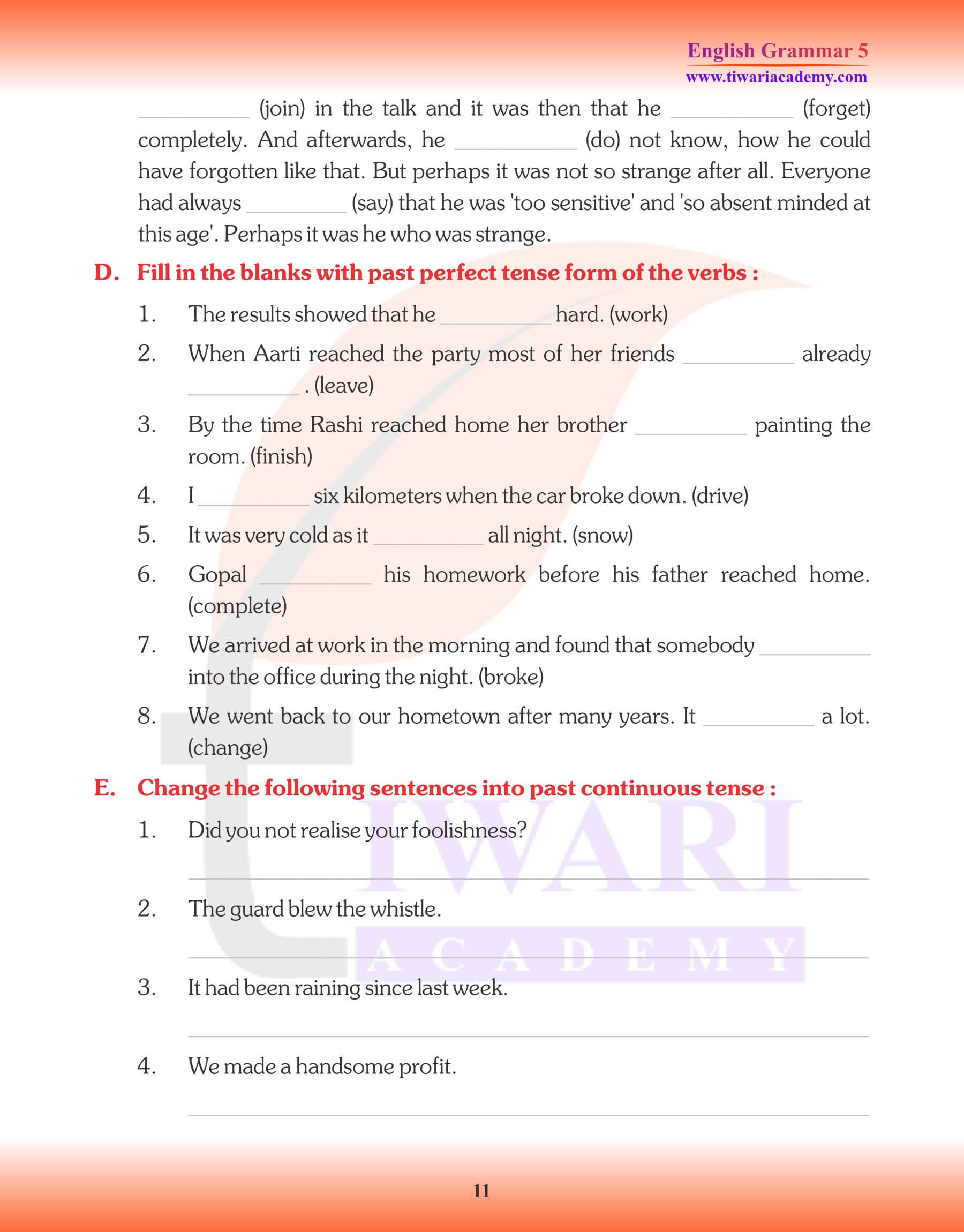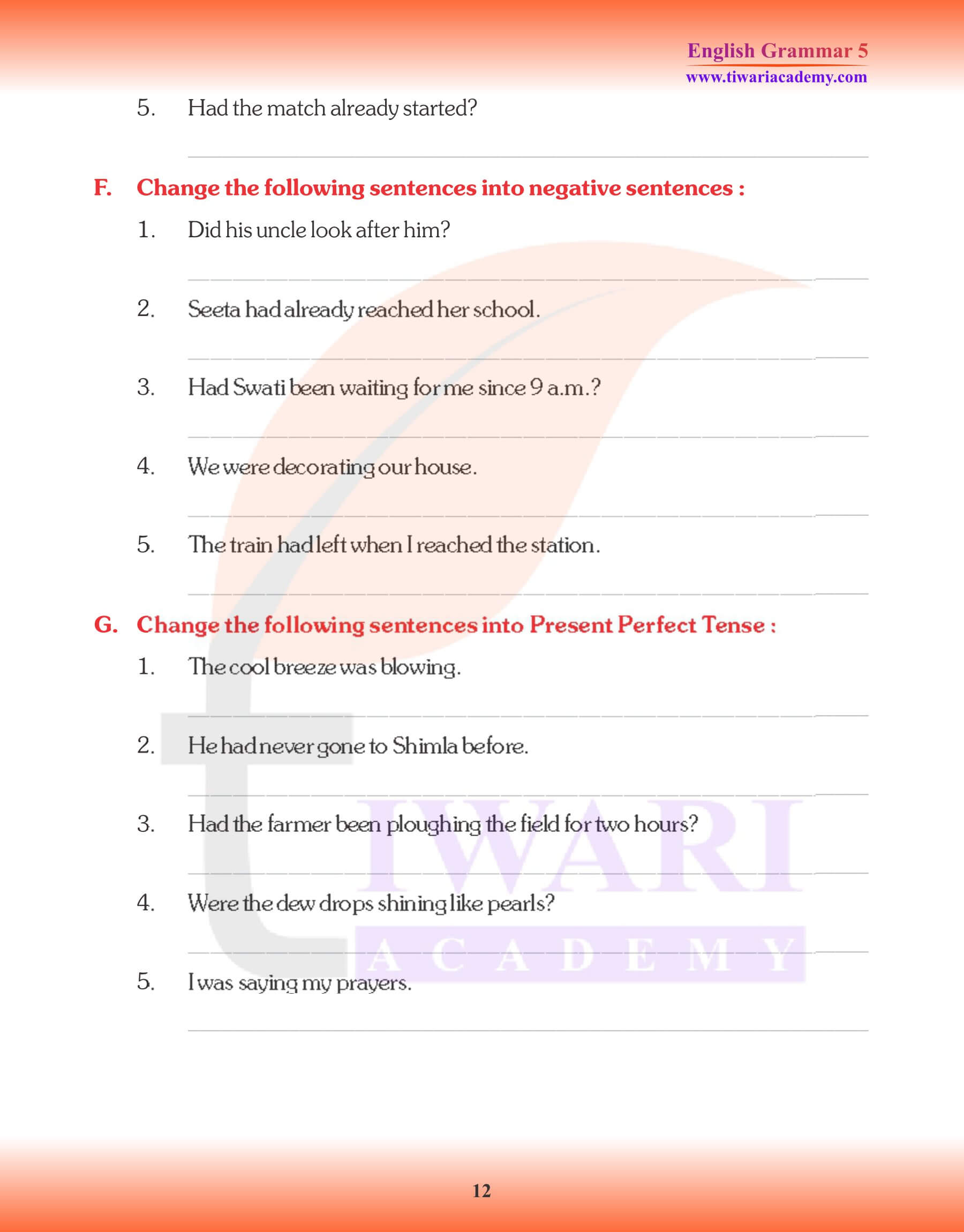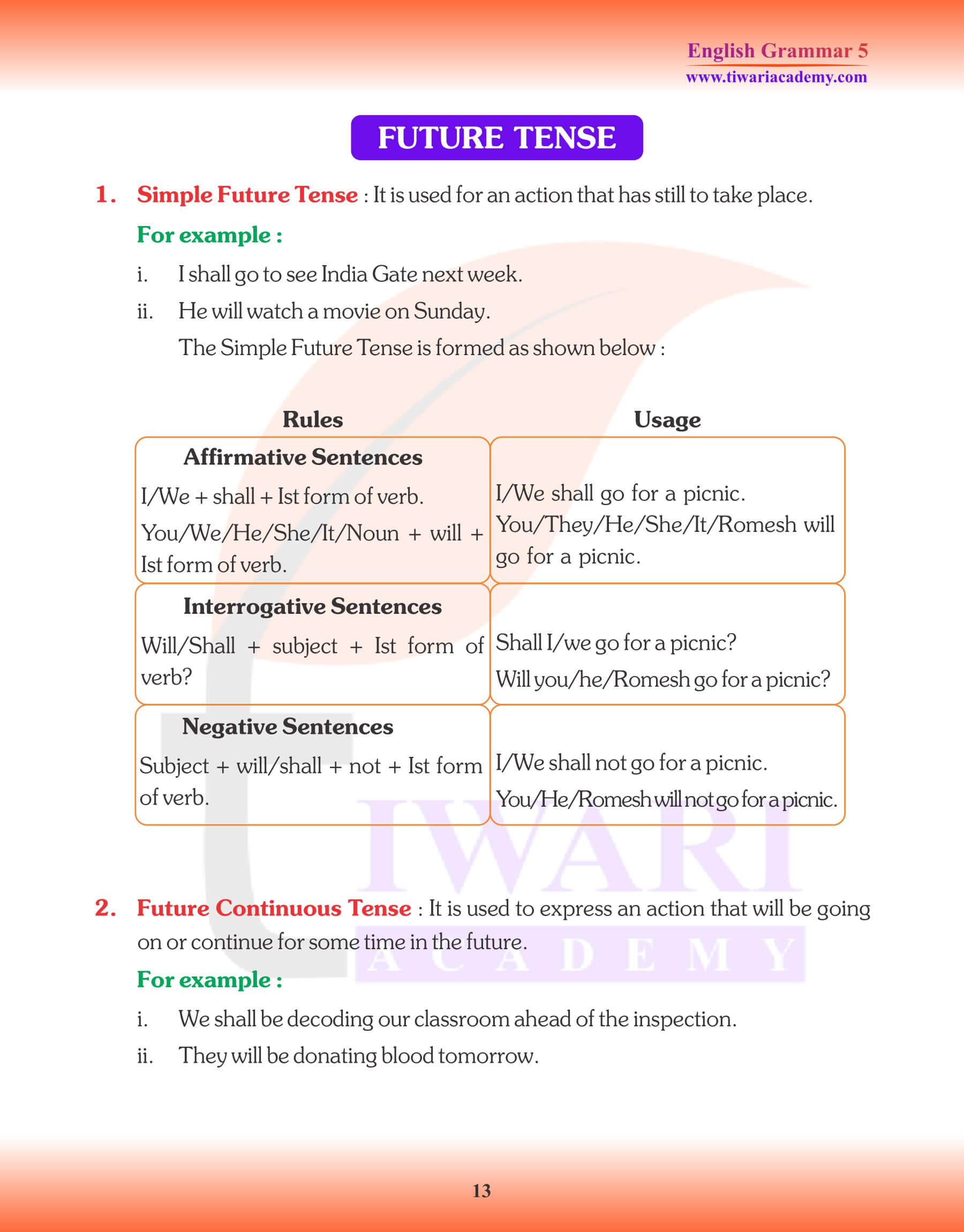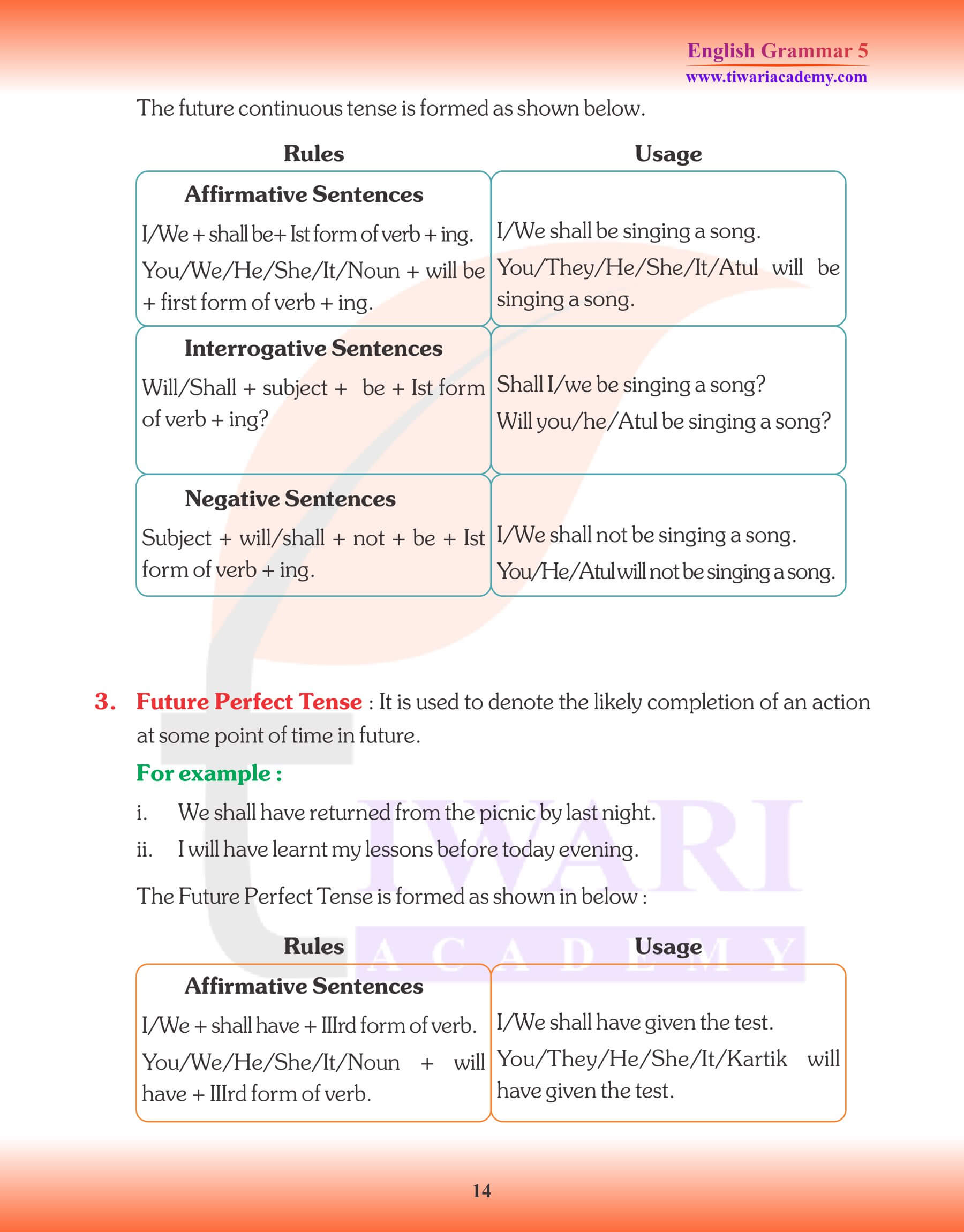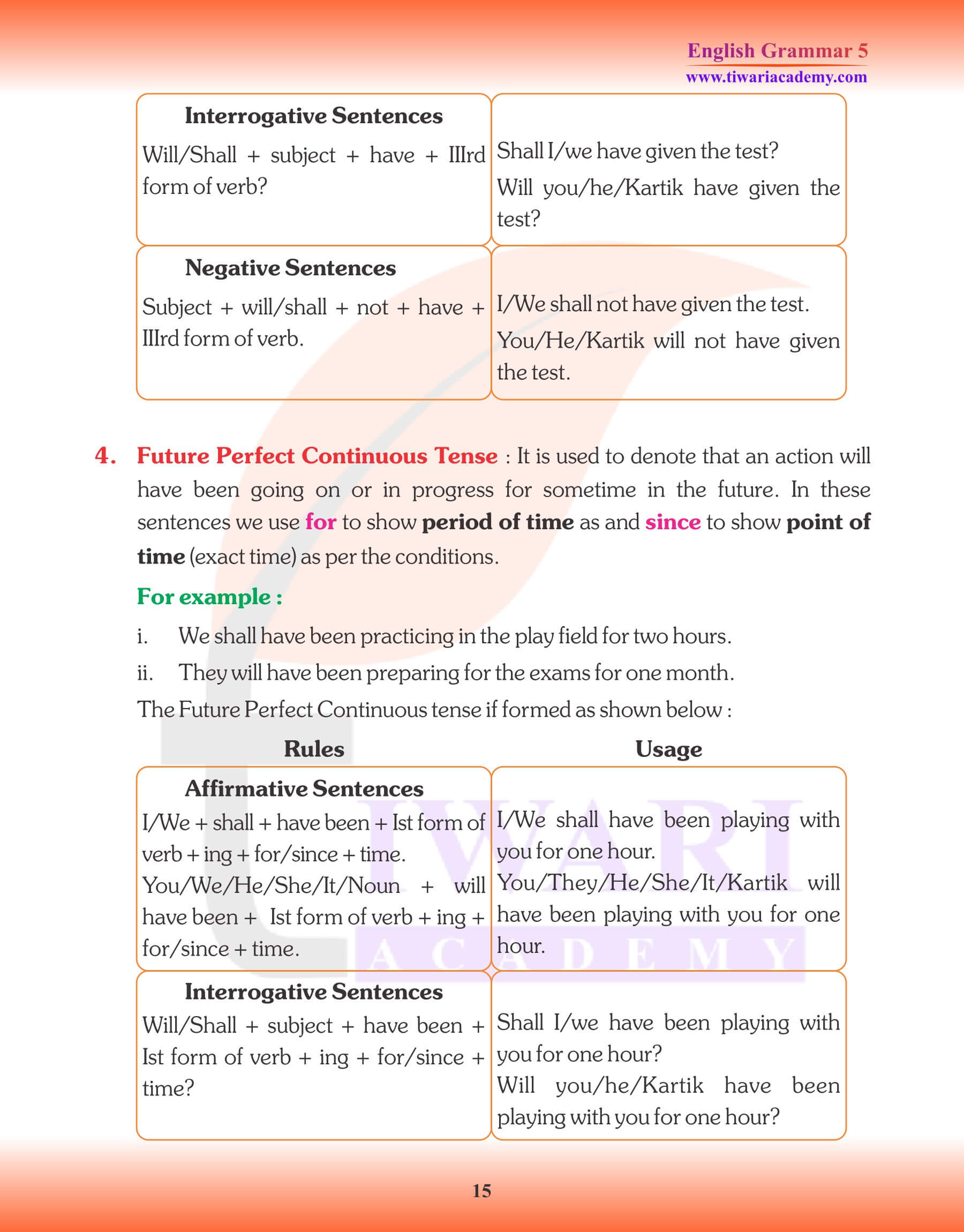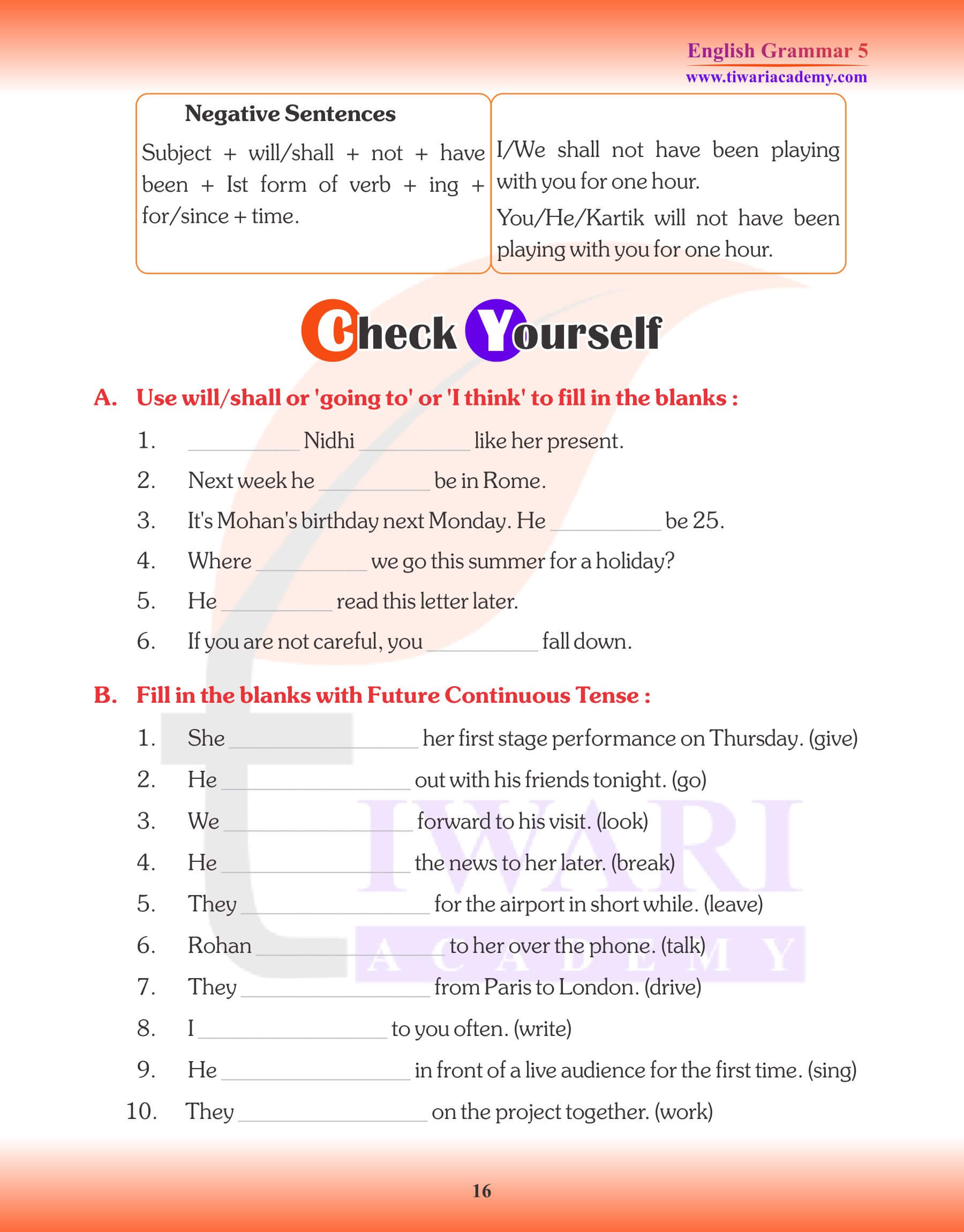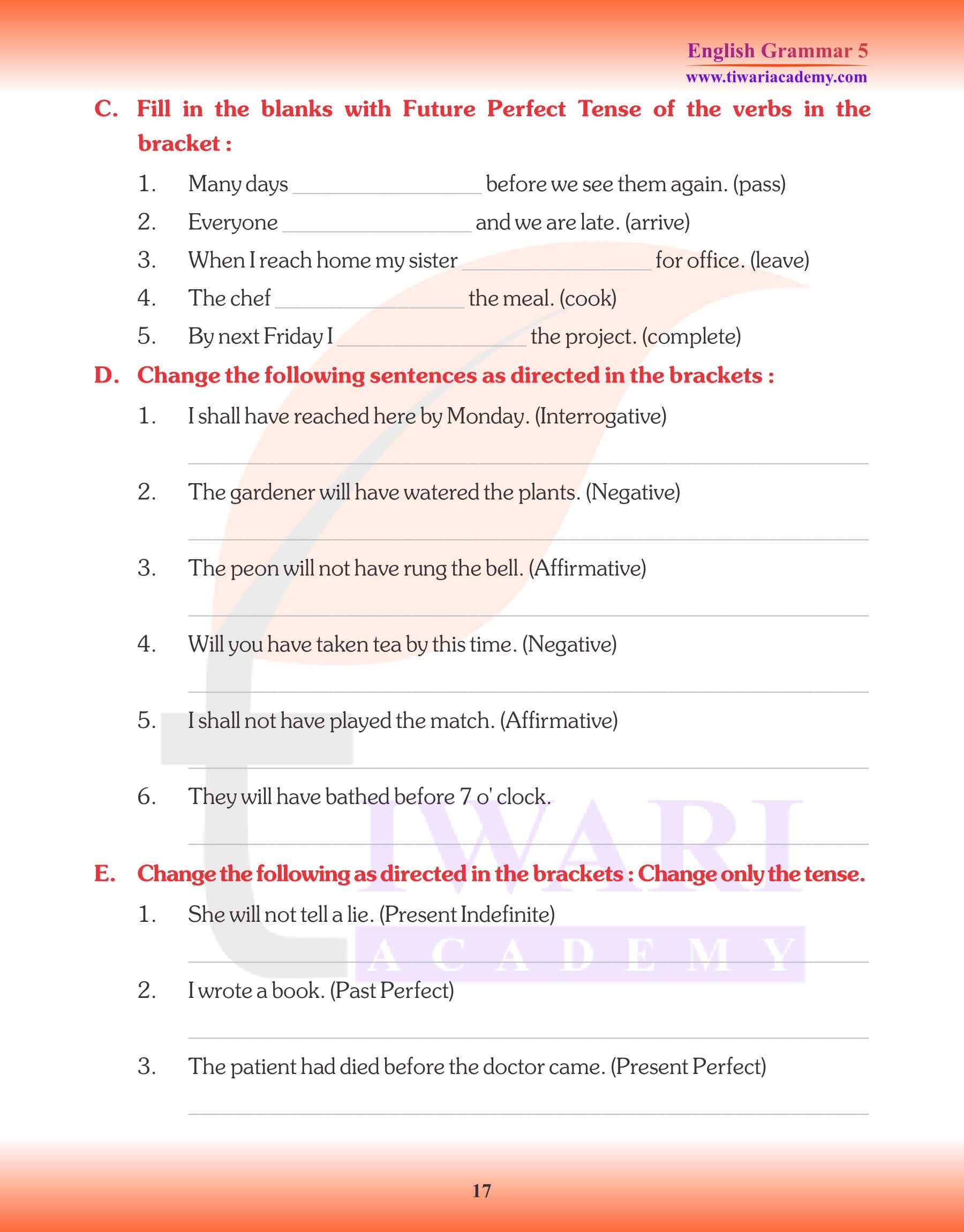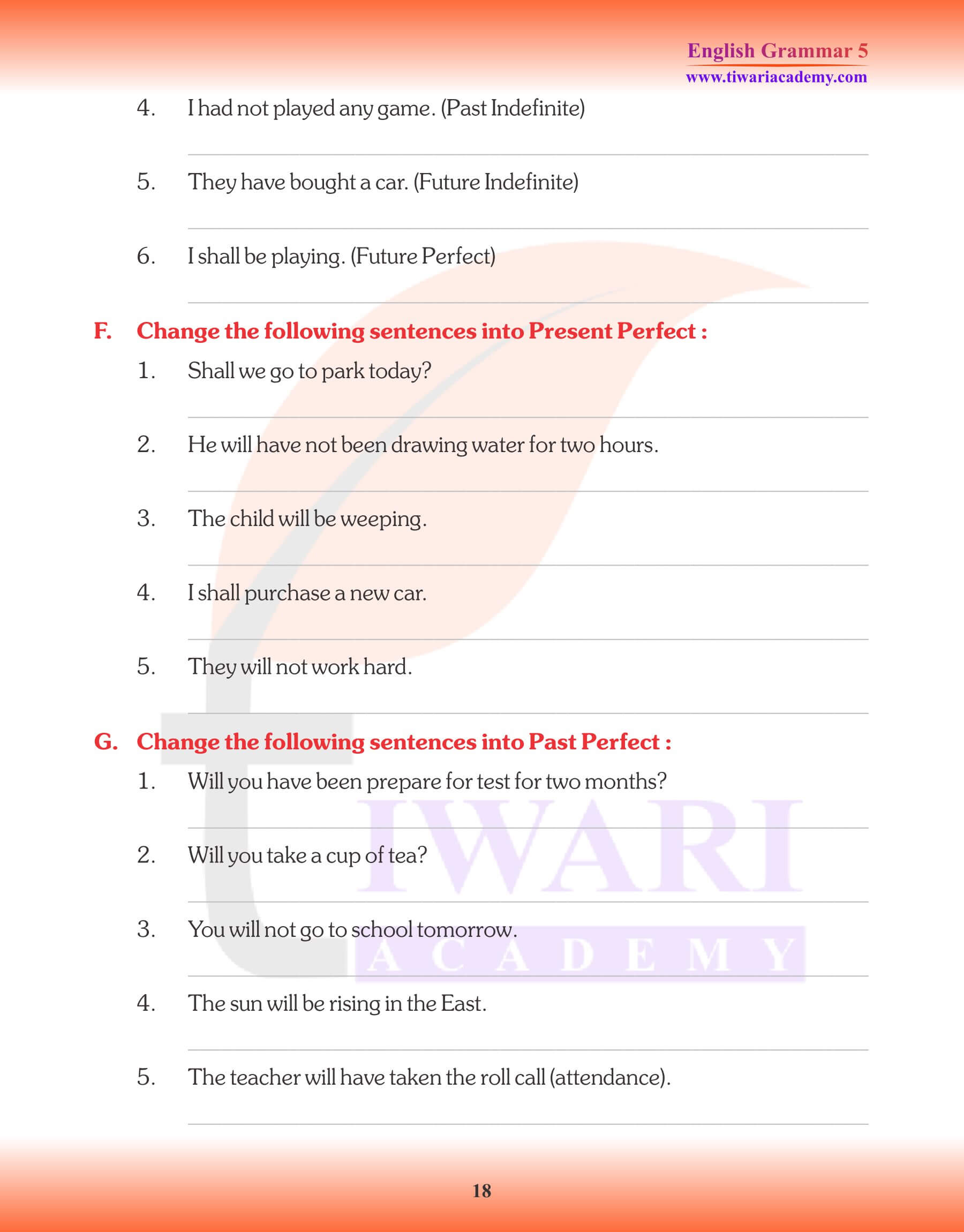NCERT Solutions for Class 5 English Grammar Chapter 6 Verb and Tense updated for CBSE academic session 2025-26. It is helpful for state board students also to clearing the doubts related to the use of verbs in tenses. Examples based on present, past and future tenses are given here and tricks related to simple tense, continuous and perfect tense are also given to clear the concepts related to make sentences.
Class 5 English Grammar Chapter 6 Verb and Tenses
Class 5 English Grammar Chapter 6 Verb and Tense
| Class: 5 | English Grammar |
| Chapter: 6 | Verb and Tenses – Present, Past, Future |
What is verb?
The verb is a word or a group of words that tells what is being done and in what state. Verb is a word that shows an action. These actions can be done in anytime in the present, i.e. today or now, in the past i.e. yesterday or sometime ago or in the future i.e. tomorrow.
Present Indefinite Tense
These are actions which are done in the present-everyday or every week, or every month or every year. They are verbs in present tense. For example,
- I go to school every day.
- I write a letter to my mother every week.
- We go for picnic every Saturday.
- She visits her parents every month.
- My parents go to Varanasi every year.
Past Indefinite Tense
These are actions which are done in the past, say, yesterday or a day before, a month ago or a year ago, a few years ago or a decade ago, a century ago or ages ago. They are verbs in past tense.
Example:
1. I went to school yesterday.
2. I wrote a letter to my mother last week.
Future Indefinite Tense
Future tense refers to actions that will happen in the future.
Example:
1. I shall go to school tomorrow.
2. I shall write a letter to my mother next week.
Examples: First Person
| Continuous Tense | Singular | Plural |
|---|---|---|
| Present | I am | We are |
| Past | I was | We were |
| Future | I shall be | We shall be |
Examples: Second Person
| Continuous Tense | Singular | Plural |
|---|---|---|
| Present | You are | You do |
| Past | We were | You are |
| Future | We shall be | You will be |
Examples: Third Person
| Continuous Tense | Singular | Plural |
|---|---|---|
| Present | He does | They do |
| Past | He did | They did |
| Future | He will be They | will be |
Present Perfect Tense
There are actions that have been completed at the present moment. These verbs are said to be in the Present Perfect Tense.
Examples:
1. I have done my homework.
2. I have read the novel.
Difference Between Present Perfect and Past Tense
Present Perfect expresses an action begun in the past and completed in the present. Past tense expresses an action of the past.
We do not mention the time when we write a sentence in present perfect tense whereas in past tense we may or may not mention the time
Example:
I have done my homework. (present perfect)
I did my homework yesterday; or I did my homework. (past tense)
Past Perfect Tense
Past perfect tense indicates that the action had been completed before another action was commenced.
Example:
1. The train had left before I arrived.
2. The patient had died when the doctor came.
In each of the above sentences we find that two actions happened in the past.
Past perfect tense is used to show which of the two actions happened earlier.
Future Perfect Tense
A verb that shows that the action would have been finished before another action in the future starts, is said to be in the Future Perfect Tense.
Examples:
1. When you come to my house I shall have finished the work.
2. When I reach thirty I shall have established myself in life.
Present Perfect Continuous Tense
Present Perfect Continuous tense is used for an action which began sometime in the past and is still continuing.
Examples:
1. He has been working since twelve o’clock.
2. They have been playing cards since morning.
From the above sentences we note that the present perfect tense is used with the time expressions like since, for, etc.
Past Perfect Continuous Tense
Past Perfect Continuous Tense is used for an action which began before a certain point in the past and continued up to that time.
Examples:
1. He had been writing a book at that time.
2. She had been singing in the AIR when she got married.
Future Perfect Continuous Tense
Future Perfect Continuous tense is used for actions which will be continued over a definite period of time in future.
Examples:
1. By next month we shall have been staying in our new house.
2. She will have been teaching in this school for the next twenty years.
PRINCIPAL VERBS
Addition of “ed”
| Present | Past | Past/Present Perfect |
|---|---|---|
| act | acted | acted |
| add | added | added |
| burn | burned, burnt | burned, burnt |
| climb | climbed | climbed |
| copy | copied | copied |
| complain | complained | complained |
Addition of “d”
| Present | Past | Past/Present Perfect |
|---|---|---|
| love | loved | loved |
| divide | divided | divided |
| name | named | named |
| judge | judged | judged |
| lie | lied | lied |
| joke | joked | joked |
Addition of “ied” in place of “y”
| Present | Past | Past/Present Perfect |
|---|---|---|
| multiply | multiplied | multiplied |
| bury | buried | buried |
| study | studied | studied |
| pity | pitied | pitied |
Change of vowels
| Present | Past | Past/Present Perfect |
|---|---|---|
| Bear | bore | borne |
| drink | drank | drunk |
| fling | flung | flung |
| get | got | got |
| ring | rang | rung |
| run | ran | run |
Change of vowels and addition of “n”
| Present | Past | Past/Present Perfect |
|---|---|---|
| arise | arose | arisen |
| awake | awoke | awaken |
| beget | begot | begotten |
| bid | bade | bidden |
| bite | bit | bitten |
No change
| Present | Past | Past/Present Perfect |
|---|---|---|
| bet | bet | bet |
| bid | bid | bid |
| burst | burst | burst |
| cast | cast | cast |
| cost | cost | cost |
| cut | cut | cut |
Exception
Present Past Past/Present Perfect
go went gone
What is the verb-tense in Class 5 English Grammar Chapter 6?
The verb is a word or a group of words that tells what is being done and in what state. Verb is a word that shows an action. These actions can be done at any time in the present, i.e. today or now, in the past i.e. yesterday or sometime ago or in the future i.e. tomorrow.
What is the Difference Between Present Perfect and Past Tense in 5th English Grammar Chapter 6?
Present Perfect expresses an action begun in the past and completed in the present. Past tense expresses an action of the past.
What do you study about present perfect continuous tense in Chapter 6 of Class 5 English Grammar?
Present Perfect Continuous tense is used for an action which began sometime in the past and is still continuing.
Examples:
(i). He has been working since twelve o’clock.
(ii). They have been playing cards since morning.
